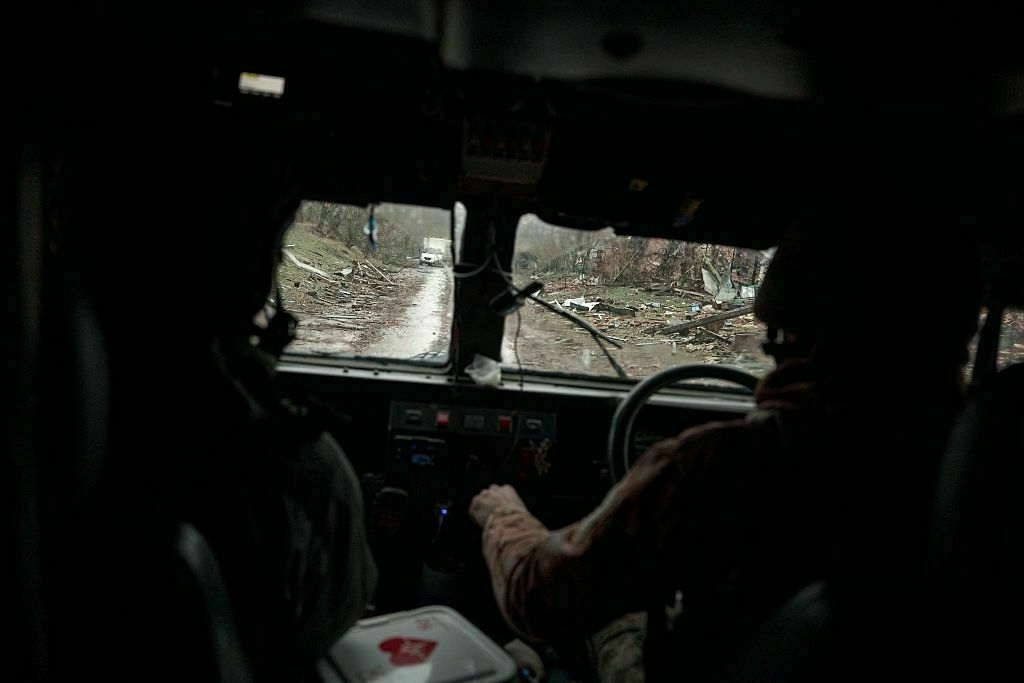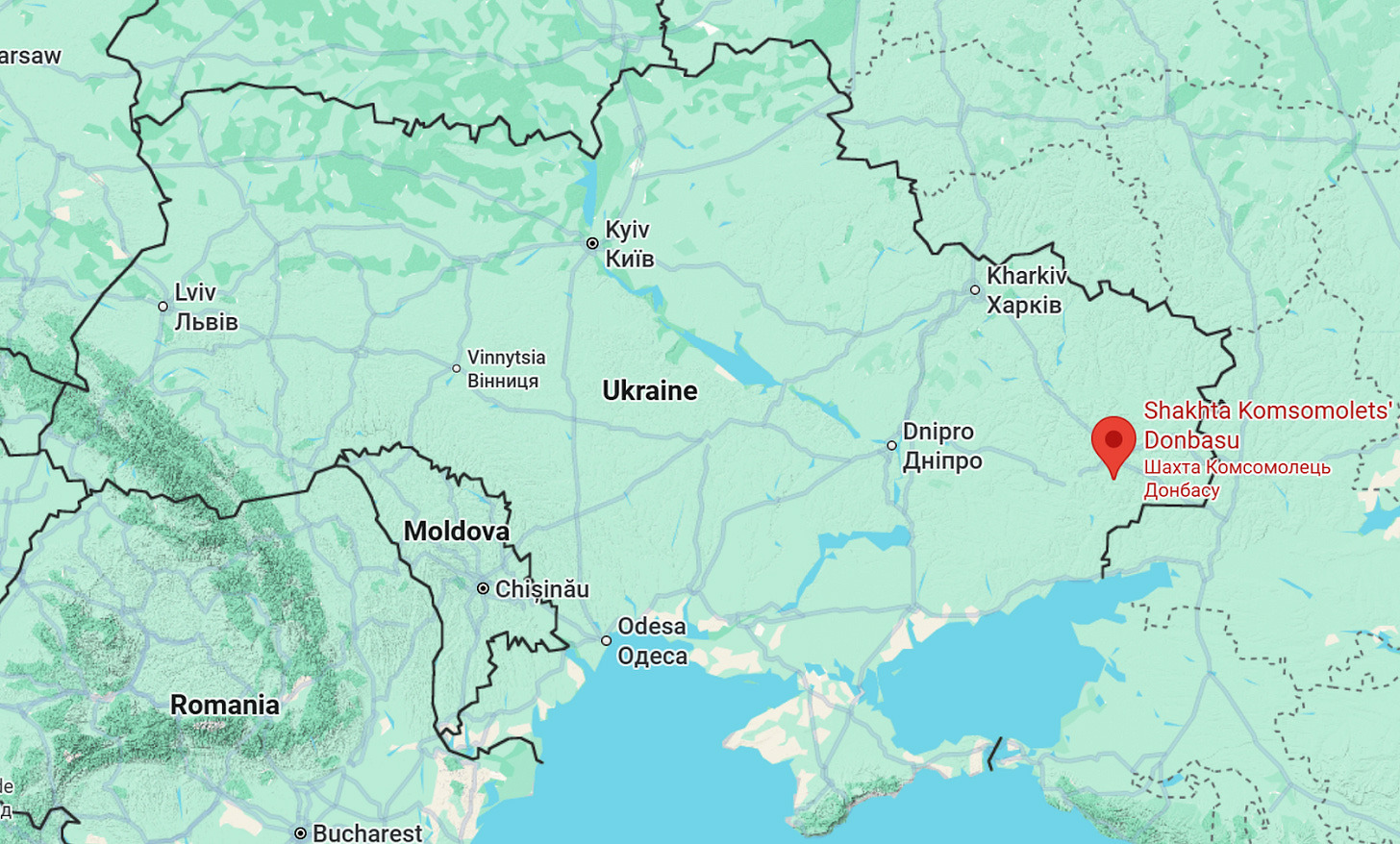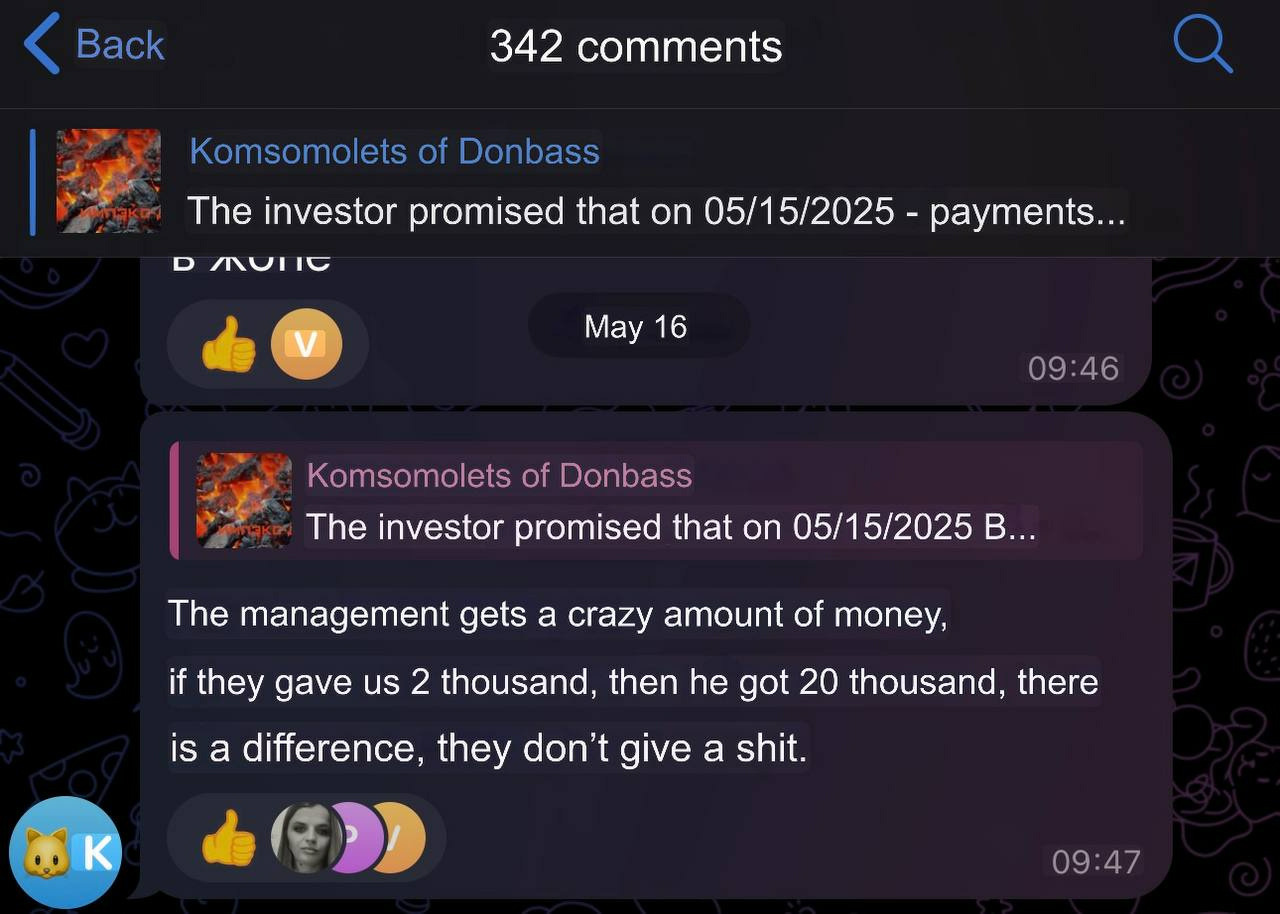-
Israel reluctant to accept Russia's mediation in war with Iran, Kremlin says
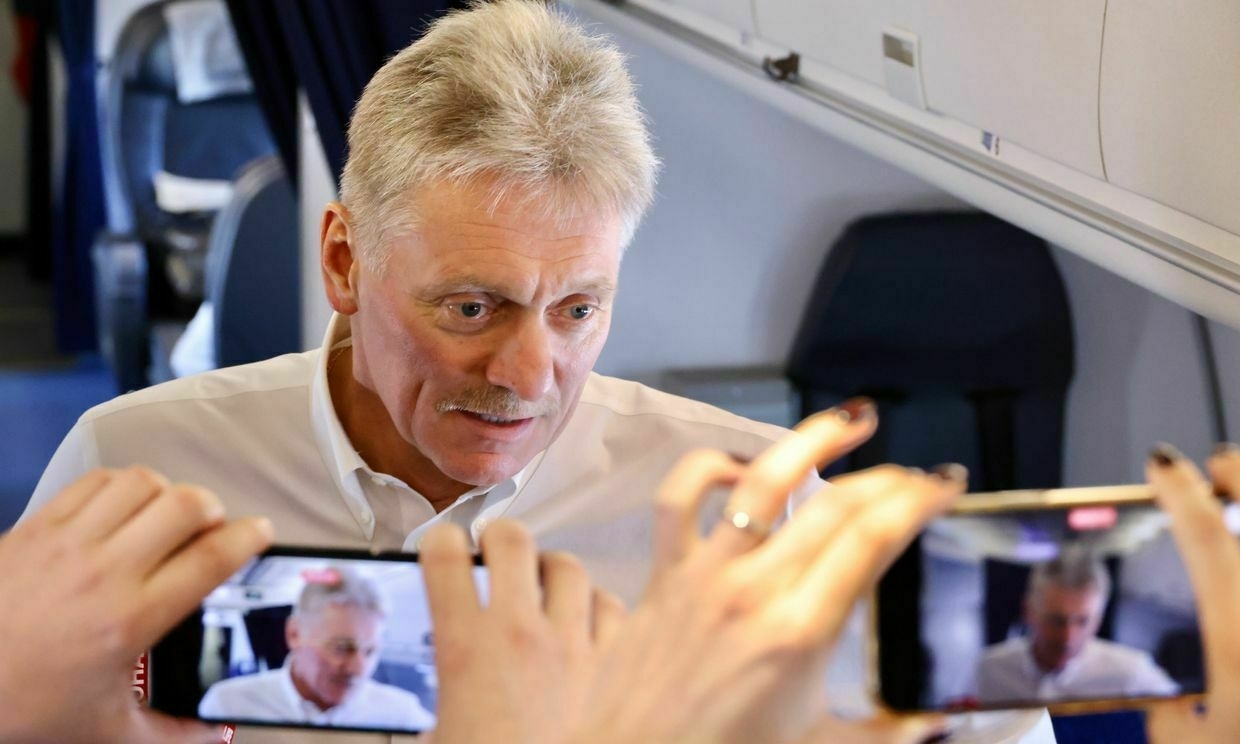
Israel is reluctant to accept Russia’s mediation in its war with Iran, Kremlin spokesperson Dmitry Peskov said on June 17, according to the Russian state news agency TASS.
“At the moment, we see reluctance — at least on Israel’s part — to resort to mediation or pursue a peaceful resolution,” Peskov claimed.
Since June 13, Israel has repeatedly carried out massive air strikes against Iran, particularly the country’s military leadership and nuclear facilities. The Israeli government justified the attacks by saying that Tehran was on the verge of creating a nuclear bomb.
Iran responded by attacking Israeli cities, including Tel Aviv, which resulted in civilian casualties, including five Ukrainian citizens on June 14.
U.S. President Donald Trump on June 15 said he was open to the idea of Russian President Vladimir Putin mediating between Iran and Israel.
“He is ready. He called me about it. We had a long talk about it. We talked about this more than his situation (war against Ukraine),” Trump said, according to ABC reporter Rachel Scott.
The Russian president held separate calls with Iranian President Masoud Pezeshkian and Israeli Prime Minister Benjamin Netanyahu on June 13.
During the call with Iran, Putin offered condolences for what the Kremlin labeled "numerous civilian casualties" and condemned Israel's actions as violations of the UN Charter. He later proposed that Russia could serve as a neutral mediator.
Israel has not commented publicly on the Kremlin's offer, but Peskov's statement implies Tel Aviv's rejection. France has also dismissed the idea, with President Emmanuel Macron saying on June 15 that Moscow "cannot be a mediator."
Russia's ties with Iran have deepened since the start of its full-scale invasion of Ukraine in 2022. Tehran has supplied Moscow with thousands of Shahed attack drones and ballistic missiles used in daily strikes against Ukrainian cities and infrastructure.
Israel, which has historically maintained cautious relations with Russia and is home to a significant Russian-speaking population, has not joined Western sanctions against Moscow.
As of June 16, Iran's Health Ministry claimed 224 people had been killed by Israeli strikes, with Tehran alleging that 90% of the casualties are civilians.
The figures have not been independently verified. Israel has not confirmed casualty numbers but maintains that the strikes were aimed at preventing an existential threat.
On June 13, Kyiv expressed support for Israel, describing Iran as a "source of instability in the region and beyond," citing Tehran's extensive military cooperation with Russia.
Israel-Iran war could provide economic boost Russia needs to continue fight against UkraineIsrael’s “preemptive” strikes against Iran targeting the country’s nuclear program and killing top military officials could have far-reaching implications for Ukraine and could boost Russia’s ability to continue its full-scale invasion, experts have told the Kyiv Independent. Iran has been one of Russia’s staunchest allies throughout the war, providing thousandsThe Kyiv IndependentChris York
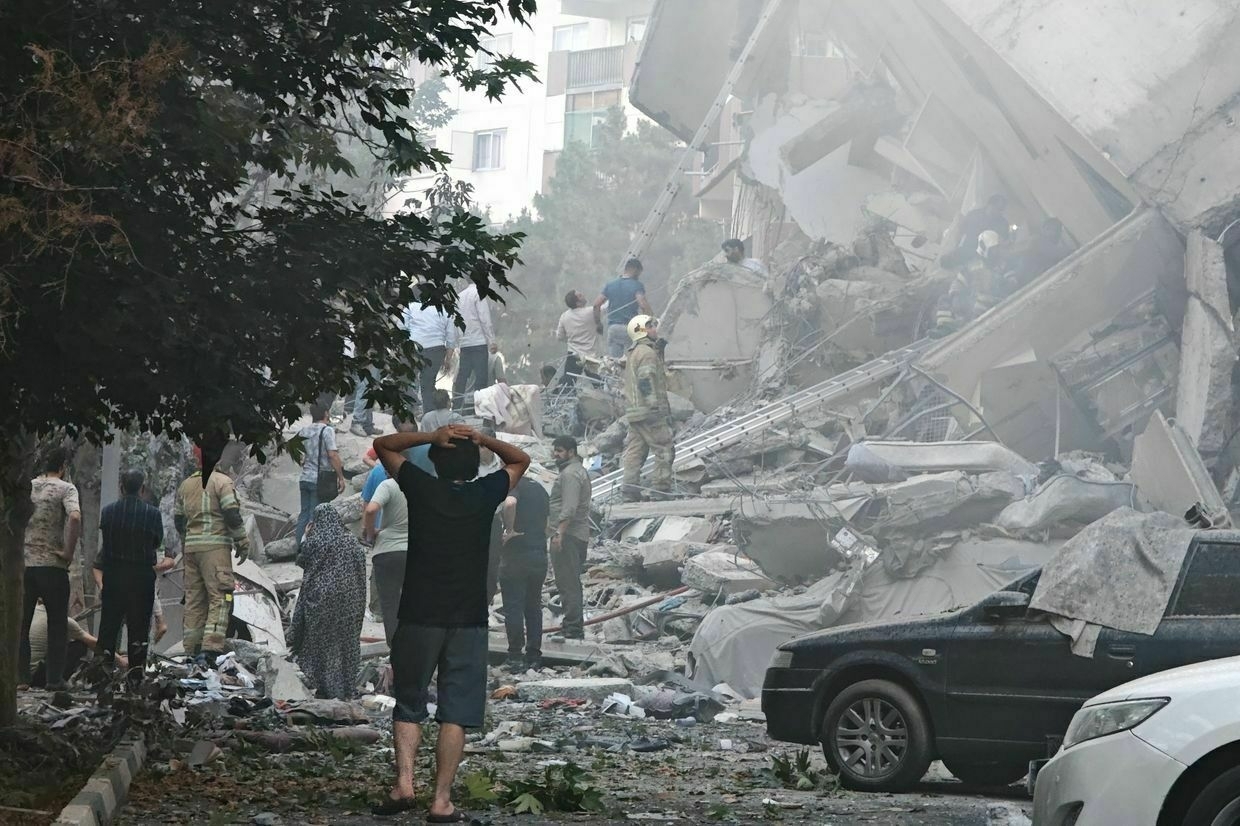
-
Investigation: How Russia steals Ukraine's trillion-dollar mineral wealth
Editor’s note: These investigations take a ton of time, resources and brainpower!
Investigations have always been the costliest part of journalism because we can’t just churn them out like commodity news in other organizations – we have to carefully probe, find connections and develop the story.
Help us to do just that! Upgrade today or help us with the tip jar!
For more than a decade, Russia has been destroying not only the lives of Ukrainians above ground, but also those beneath it.
One of the biggest victims of the war is the miners, who spend most of their time underground extracting the mineral wealth of Ukraine. According to Forbes, Ukraine boasts an estimated $14.8 trillion in mineral resources, 62 percent of which is in coal.
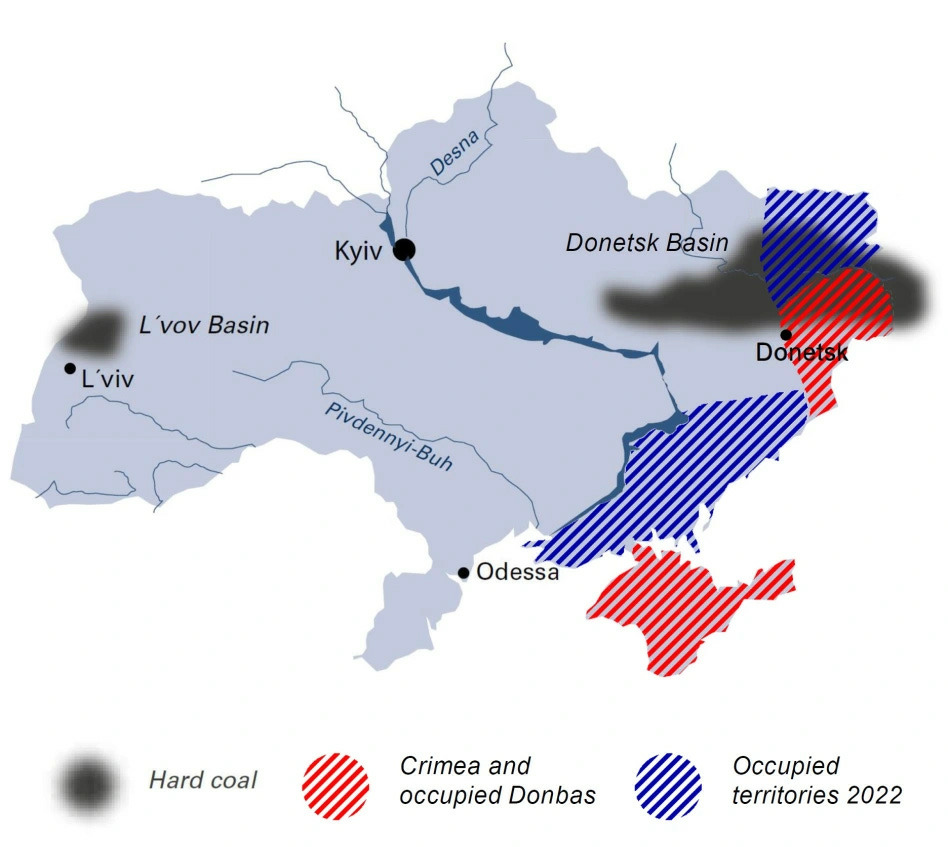
Ukrainian hard coal locations. Source: EURACOAL. Since 2014, Russia has consistently been taking over Ukrainian mines. As of 2022, Russia had seized 63 percent of Ukraine's coal deposits.
Russia has started illegally exporting coal for resale at some mines. This coal is produced, sold (often to foreign buyers), and then physically transported by Russian ships from the occupied port of Mariupol.
The Counteroffensive has established that Russia has used three vessels — ALFA 1, ALPHA HERMES and VIKTORIA V — to operate on the occupied territories and export coal illegally. Although Moscow is deliberately trying to hide the means of its crimes, in 2024-2025 Russia exported more than 60,000 tons of coal via those vessels.
This is not simply alleged looting — these are real, traceable logistics operations with identifiable ships.
The Counteroffensive also found that one of the biggest regional coal exporters – Don Coal Trade House, operating five mines in the occupied Luhansk region – systematically shipped coal from the occupied territories to Turkey in 2024. This occurred even though Turkey has formally condemned the Russian occupation.
This systematic campaign by Russia is a deliberate strategy of economic exploitation of occupied territories, which violates international law enshrined in The Hague Conventions.
Such actions – and ongoing impunity for Russia – incentivizes dictatorships to revive colonial practices, in which occupied territories become a raw material base for enriching far-off metropolitan areas.
Russia's illegal extraction of minerals
The Russian invasion in 2014 marked the beginning of the end for the mines in eastern Ukraine. Due to constant attacks and occupation of the Luhansk and Donetsk regions, only a small number of mines that were seized continued operations.
However, the Russian-aligned occupation administrations still considered it a net positive. After establishing a foothold in the region, they resumed coal production and export.
The Russians began to actively revive this sector in 2024. Officials announced the arrival of investors from Russia, and Putin personally promised to make every effort to boost the industry:
"We remember the great merits of the pioneer miners of Donbas and will do our best to revive coal mining, metallurgy and other industries here," he said.
By 2024, approximately 15 Ukrainian mines in the occupied Donetsk and Luhansk regions were leased to Russian companies. The two largest investors were Impex-Don and Don Coal Trade House.
Impex-Don manages four mines in the Donetsk region, where it is also registered. It is owned by Imperial, a company led by Viktor Gryzlov. He is a member of a family that controls the port in Rostov-on-Don, from where shipments are sent to countries in the Black Sea and Mediterranean basins.
Don Coal Trade House was founded in Rostov-on-Don in 2020 by Oleg Knyazev, who served as deputy governor of a Russian region from 2021 to February 2024.
These companies and other leaseholders promised to invest over $800 million in the seized facilities. Since 2024, the companies have been actively mining coal and selling it to other countries.
The Counteroffensive learned that Don Coal Trade House sold coal from the occupied territories abroad in 2024. In April-May 2024 alone, Don Coal Trade House shipped over 45,000 tons of coal to Turkey, with the total value close to $4 million, according to export-import database records. Turkey purchases this coal because, unlike the U.S. and the EU, it hasn't restricted coal trade with Russia or occupied Ukrainian territories.
The coal was shipped through a company registered in Hong Kong called Green Rabbit Limited. The company does not appear to have a website, registration date or publicly available contact information.
Despite its origin, this company has systematically purchased coal from Russian companies. It was also previously used by Russia to export wheat grown in the Donetsk region, records show.
The coal mined in Donbas was physically exported via the port of Mariupol, which is actively used to export looted minerals from occupied territories.
In April 2025, Russian vessels entered Mariupol to load coal, according to photos published by the head of the Center for the Study of the Occupation, Petro Andriushchenko.
The Counteroffensive compared photos of the vessel and identified it as the ship Alfa 1. In 2024-2025, Alfa 1 exported more than 20 thousand tons of coking coal, equal to more than two fully loaded vessels.

Photo of the Alfa 1 in the port of Mariupol in April 2025. Source: Head of Center for the Study of the Occupation Petro Andriushchenko. 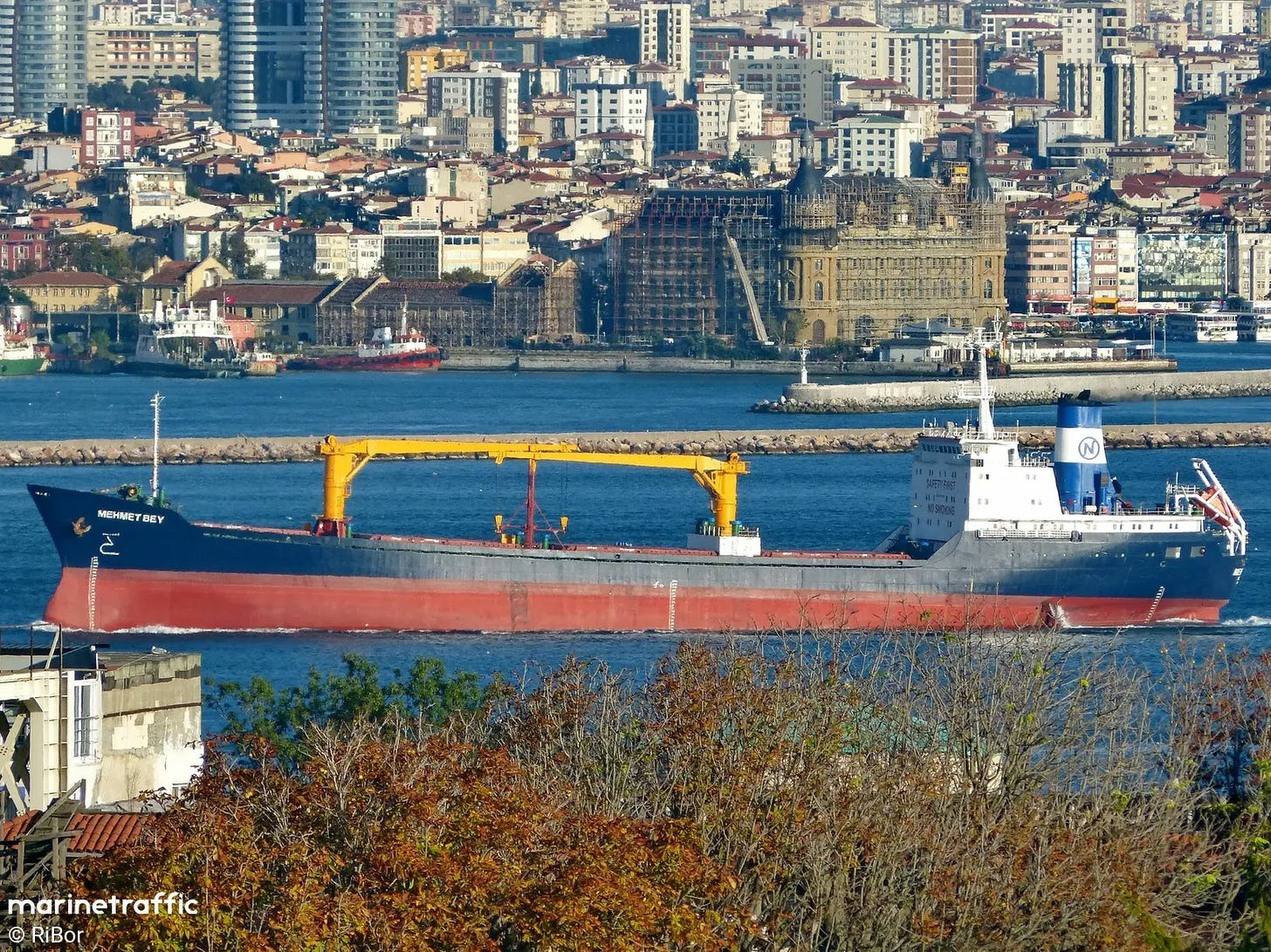
Photo of the Alfa 1 vessel from open sources. Source: MarineTraffic. At the same time, as seen in Andriushchenko's photos, two more Russian ships entered the port of Mariupol. The Counteroffensive identified them as ALPHA HERMES and VICTORIA V.
In 2024-2025 these two vessels exported more than 40,000 tons of coking coal from the port in Mariupol, according to Ukrainian intelligence.
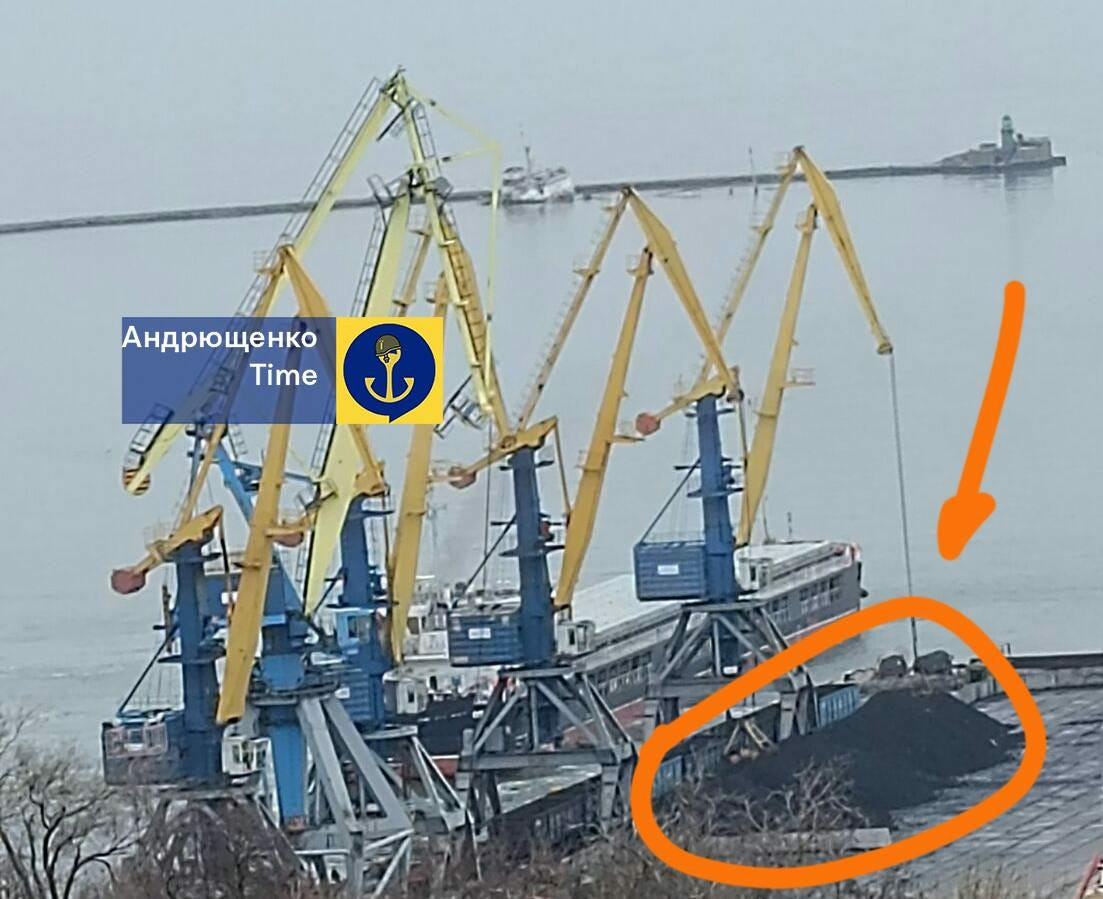
Photo of the ALPHA HERMES in the port of Mariupol in April 2025. Source: Head of Center for the Study of the Occupation Petro Andriushchenko. 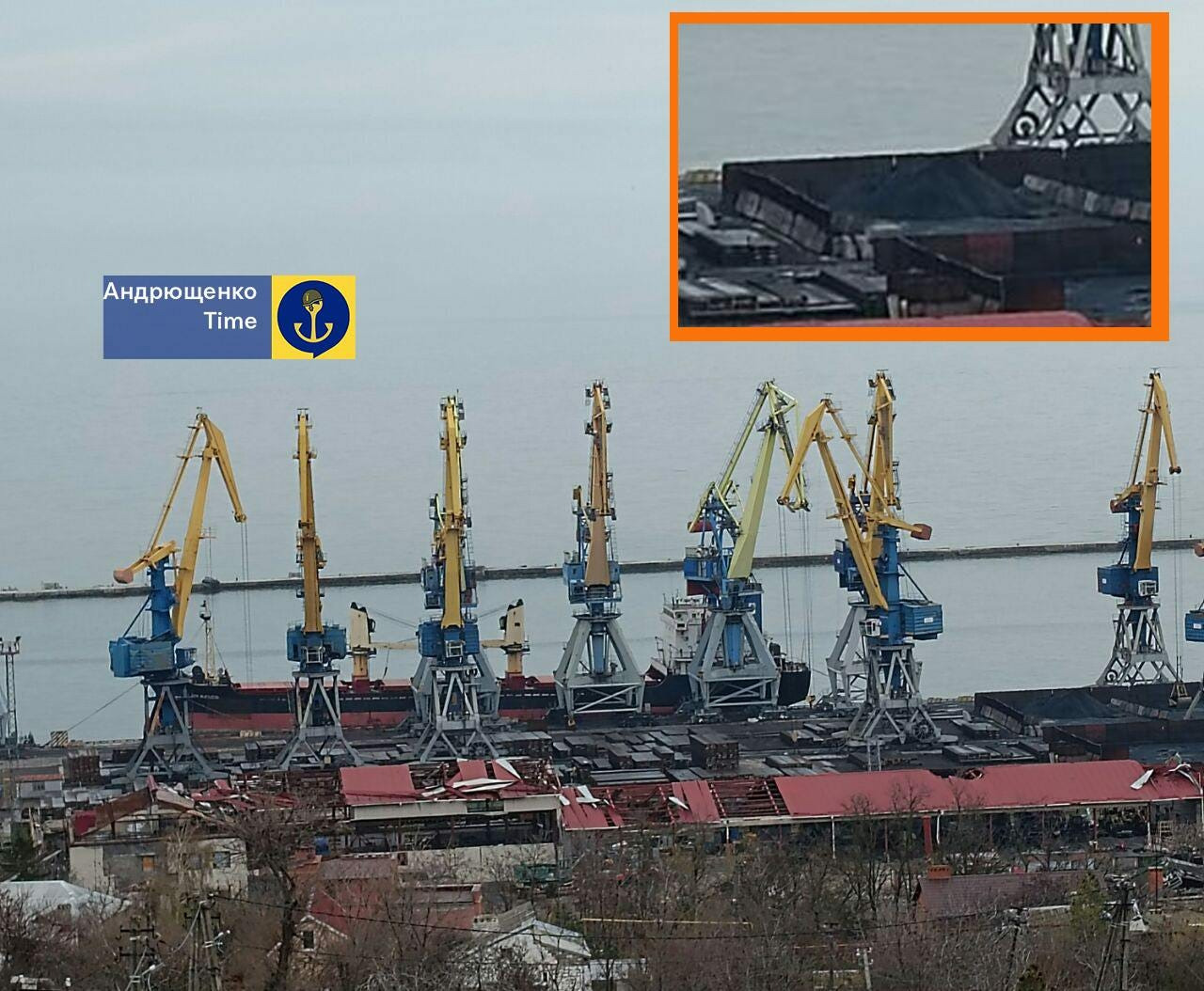
Photo of the VICTORIA V in the port of Mariupol in April 2025. Source: Head of Center for the Study of the Occupation Petro Andriushchenko. Vessel tracking sources don't show them entering Mariupol ports, as Russians deliberately disable ships' AIS (Automatic Identification System), making them invisible to outside trackers in a bid to hide the illegal presence of ships in territorial waters.
Both ALPHA HERMES and VICTORIA V belong to Russian companies, according to maritime records. In 2023, the United States imposed sanctions on ALPHA HERMES.
The export of Ukrainian coal isn't just regular commerce for a few businesses, but a deliberate Kremlin policy to quietly exploit Ukraine's mineral wealth.
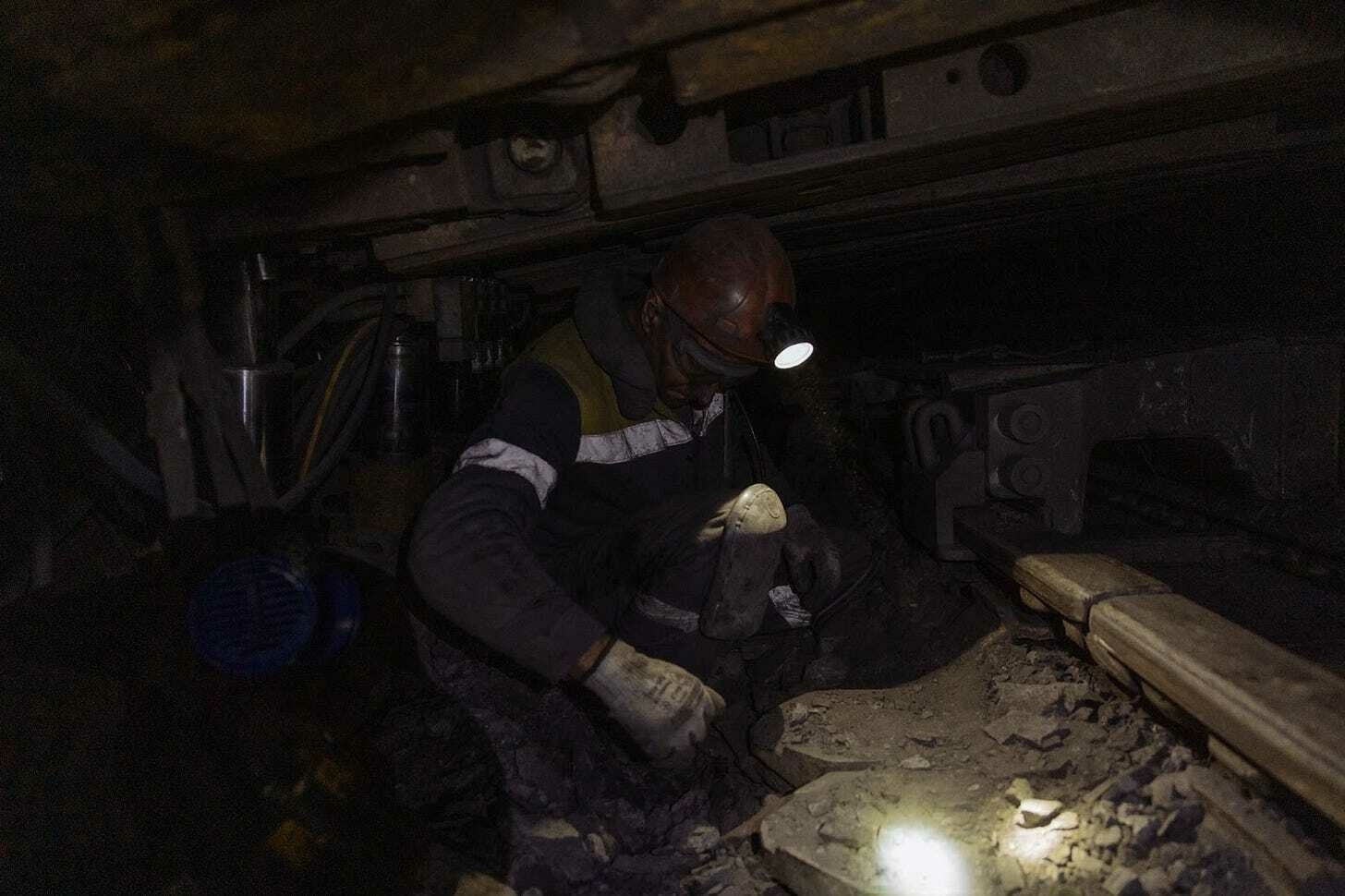
A miner works underground in a coal mine in the western part of Donbas, on October 11, 2024, amid the Russian invasion of Ukraine. Photo by ROMAN PILIPEY/AFP via Getty Images. How Russia abuse mine workers
Russia is attempting to conceal not only the illicit export of coal, but also the poor treatment of the miners who extract it.
When Russia occupied this part of eastern Ukraine more than 10 years ago, it promised prosperity and improved living conditions for Ukrainians. But in reality, dozens of mines in Donbas were closed or flooded, and theft appears to be a common practice.
One of the mines from which Russians produce coal is Komsomolets Donbassa. It was commissioned in the 1980s and named after the Soviet youth organization whose members built it.

Komsomolets Donbassa mine. Source: UNIAN. Impex-Don, which manages four mines in Donetsk, promised to invest in equipment modernization and increase the number of employees as part of an effort to extract more Ukrainian coal and profit from its sale.
Despite these lofty promises, however, the company showed a complete disregard for its own employees. By scouring feedback from miners on Russian-language social media sites, The Counteroffensive was able to piece together a disturbing portrait of how the miners have been treated.
Under Telegram posts published by Komsomolets Donbassa mine, which Impex-Don manages, employees complained about not being paid on time. Some miners even publicly refused to keep working.
The saga apparently went on for months, with the Komsomolets Donbassa mine promising on May 15 to pay out the remainder of the salary still owed to employees for March, and employees still reporting late payments after that on its Telegram page. Partial payments that were insufficient for even basic needs led some employees to threaten to strike over unpaid wages.
Beyond exploiting existing resources, Russia is preparing to mine other minerals in occupied Ukrainian territories, including manganese, which can be used to improve the quality of steel in armored vehicles.
How Russia is destroying Ukraine's coal industry
By the end of October 2024, Ukraine controlled only 24 mines out of 145 that existed in 2014, according to Mykhailo Volynets, a senior miners' union official.
The rest are under Russian occupation.
Numerous miners told The Counteroffensive that Russia was looting Ukrainian mining equipment. Volynko, the head of the Independent Trade Union of Miners of Donbas, said the Russians set up four smelters on the border with the Rostov region, to which they brought stolen equipment and melted it down.
The Russian military itself aided in the transport and looting of equipment, Volynko said.
Russia is thus delivering a two-pronged blow: physically destroying Ukrainian mines and illegally looting the valuable infrastructure, and stealing while simultaneously selling abroad mineral resources that rightfully belong to Ukraine.
With an eye on ever-increasing extraction, Russia is demonstrating its true aim: prolonging the war to expand its control over profitable territories it can plunder.
In this time of great uncertainty — and unstable American support — it means that the situation on the ground is very dangerous. Your contributions help us get the body armor, medical gear, and supplies we need to stay safe.
Show your support by contributing to our tip jar - funds go towards keeping us safe and ensuring our work continues.
NEWS OF THE DAY:
TRUMP’S CALL FOR RUSSIA TO REJOIN AT G7 SUMMIT AS IT STRIKES KYIV:
Despite a fresh Russian attack on Kyiv, Donald Trump repeated his call to readmit Russia to the G7, calling its 2014 expulsion “a big mistake.” The U.S. President also refused to support additional sanctions unless Europe acts first.
Trump appeared to justify Russia’s 2022 full-scale invasion of Ukraine by linking it to Moscow’s removal from the G8. While Trump praises Putin and his ‘efforts’ for peace, Putin “make[s] the G7 leaders look weak,” Ukrainian foreign minister Sybiha said.
UKRAINE OPENS LITHIUM DEPOSITS TO INVESTORS UNDER U.S.-UKRAINE MINERAL DEAL: On Monday, the Ukrainian government approved access for private companies to develop one of its largest state-owned lithium deposits – the Dobra site in the Kirovohrad region.
Kyiv is preparing bidding recommendations for potential bidders, including U.S.-backed TechMet and Trump’s friend Ronald S. Lauder. The revenues from the extraction would go to a joint U.S.-Ukraine investment fund and later be reinvested in Ukraine’s economy, giving a portion to Washington.
This is the first project and a sign of the implementation of the U.S.-Ukraine mineral deal, signed on May 1, 2025.
DENMARK DEPLOYS ROBOTIC SAILBOATS TO SECURE BALTIC, NORTH SEAS: The Danish military is using uncrewed sailboats to monitor the increasingly tense waters of the Baltic and North Seas. The vessels can detect activity up to 20–30 miles above and below the surface, “going to places ... where we previously didn’t have eyes and ears,” Richard Jenkins, Saildrone founder and CEO, said.
The precaution comes amid growing security concerns, including alleged Russian sabotage, the destruction of at least 11 undersea cables since 2023, increased activity by Russia’s oil shadow fleet, and renewed U.S. interest in the Arctic, including Donald Trump’s eyeing of Greenland.
THE CAT OF CONFLICT:
Today’s cat of conflict is very famous among students of Veronika and Zoriana’s university. Seen on the car, he is just a chill guy.
Stay safe out there.
Best,
Veronika -
Former Ukrainian Foreign Minister predicts imminent collapse of Russia
Volodymyr Ohryzko, Ukraine's former Foreign Minister, has expressed a stark view regarding the future of Russia, suggesting that the nation is nearing the final chapter of its existence. In a candid discussion, he emphasized that the collapse of Russia can occur spontaneously, regardless of Western influence, due to existing internal factors.
During an appearance on the Espreso TV channel, where Ohryzko boldly stated, "Russia has reached the final line of its development. It will not hold under any circumstances. We just do not know what exactly will be the impetus for its collapse — it could be anything: the murder of a student in Makhachkala, a fire in Ulan-Ude, or another event."
According to Ohryzko, the nation is facing a critical phase reminiscent of the former USSR, slowly deteriorating from within, independent of external pressures. He touched upon the unpredictability of Russia's long-term future, positing that surviving until 2030 would be a substantial achievement in itself. "If Russia survives until 2030, it will already be a big success. However, most likely not," he stated, underscoring the urgency of intervening to prevent Russia from continuing as a global destabilizing force.
Adding to this narrative, a report from the Financial Times indicates that nearly half of foreign policy specialists believe Russia is on a path to either becoming a failed state or collapsing by 2033, further cementing Ohryzko's perspective.
-
Ukraine urges citizens to leave Israel and Iran amid escalating tensions
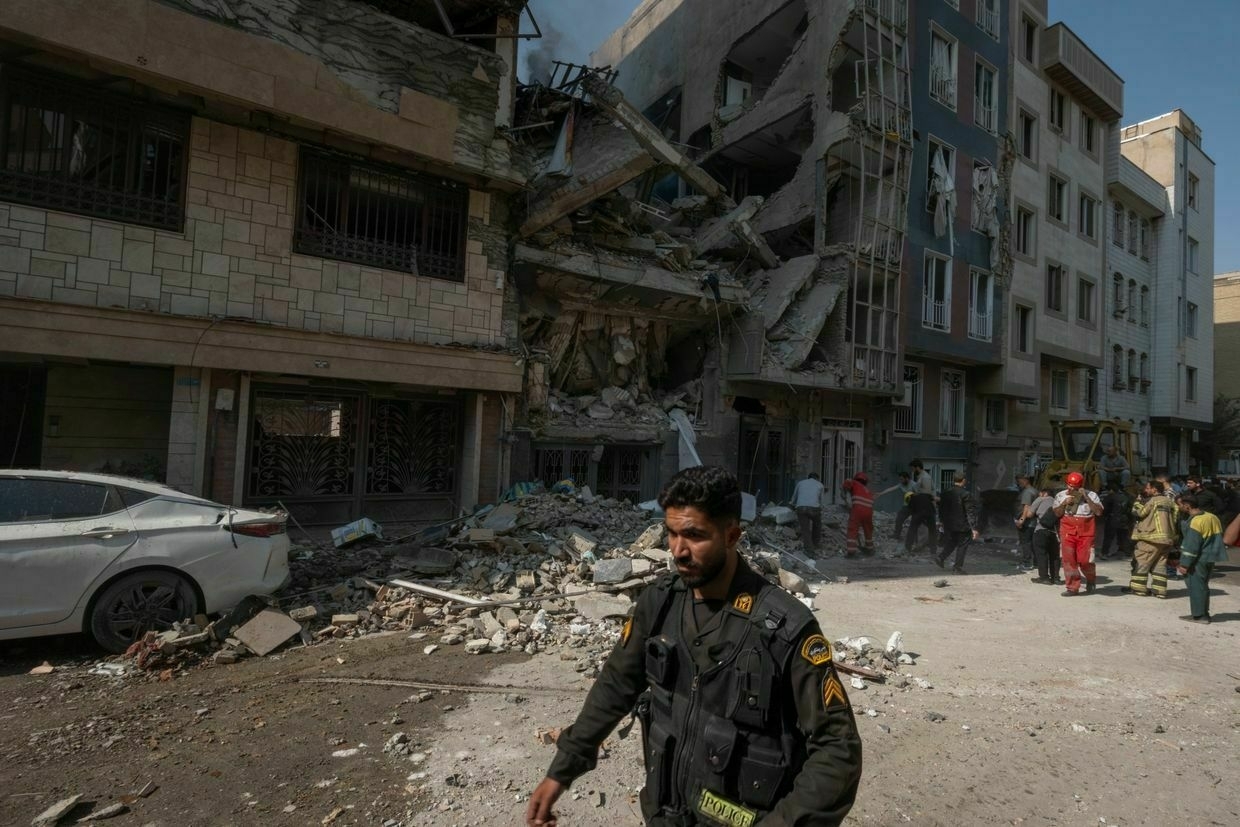
Ukraine’s Foreign Ministry has urged its citizens to leave Israel and Iran “as soon as possible” due to a serious deterioration in regional security, the ministry said in a statement on June 17.
“In connection with a significant worsening of the security situation in the Middle East, the Ministry of Foreign Affairs strongly recommends that Ukrainian citizens leave the territory of the State of Israel and the Islamic Republic of Iran as soon as possible, until the situation stabilizes,” the statement read.
Ukrainians who remain in either country are advised to remain vigilant, monitor updates from local authorities, follow air raid alerts, adhere to safety protocols, and always carry valid identification documents.
The Ukrainian embassies in Israel and Iran are compiling evacuation lists and preparing potential evacuation plans. Information about available evacuation routes is being published on the official Facebook pages of the Ukrainian embassies in Israel and Iran.
The Israeli military launched a large-scale attack on Iran’s nuclear and military infrastructure on June 13, which were followed by retaliatory ballistic missile strikes from Tehran. Israel has since struck key defense targets in Tehran, including the headquarters of Iran’s Defense Ministry.
Iran claims new ballistic missile tactic allowed breach of Israeli air defensesIranian missiles were guided in a way that caused Israeli interceptor missiles to target each other, Iran’s Islamic Revolutionary Guard Corps (IRGC) said.The Kyiv IndependentTim Zadorozhnyy
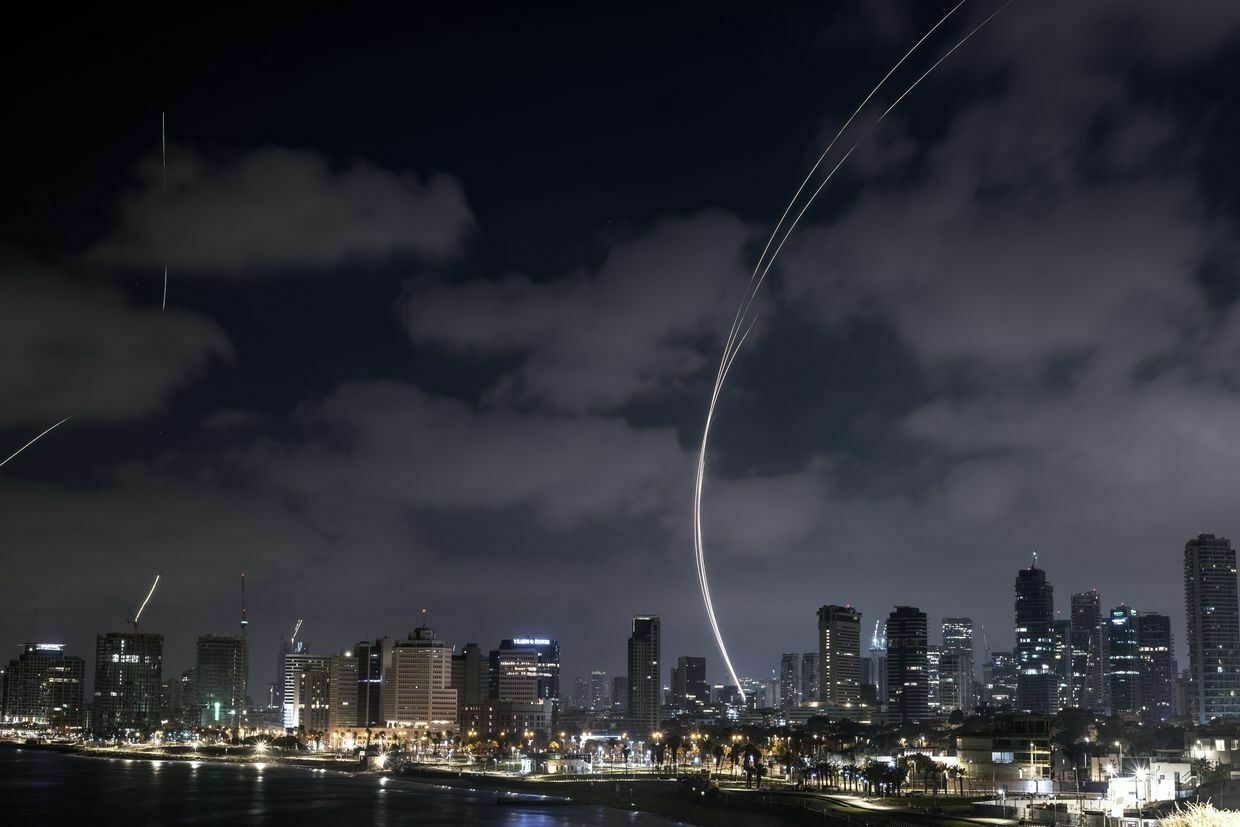
-
Hours after deadly Russian attack on Kyiv, Trump was unaware it had even happened
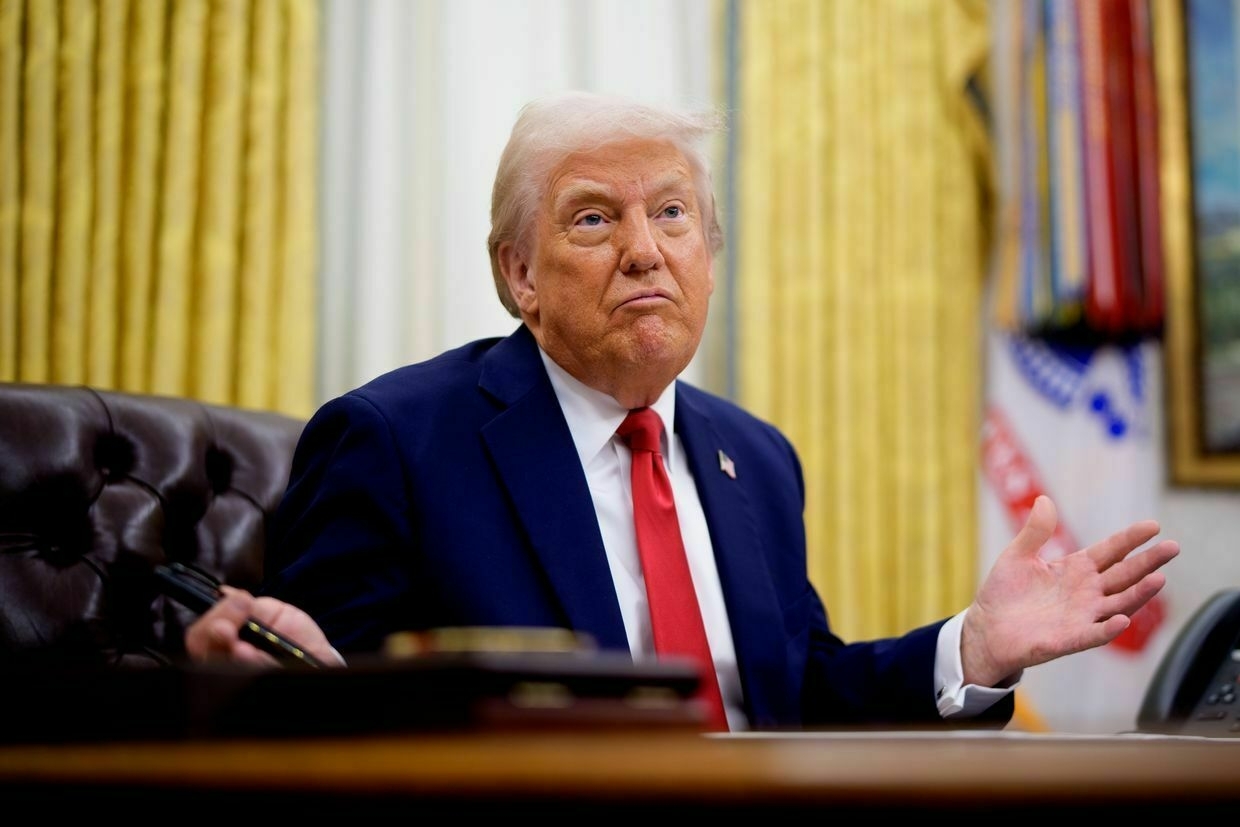
U.S. President Donald Trump was unaware of a deadly Russian drone and missile strike on Kyiv that killed at least 15 people and injured over 120, when asked about the attack by reporters on June 17.
On board Air Force One as he flew back from Canada, Trump was questioned about the attack by a reporter. A clock in the plane shows it was shortly after 1:30 a.m. Washington time, 8:30 a.m. Kyiv time, two-and-a-half hours after the nine-hour-long attack ended, and after reports of casualties had been made public.
When asked for his reaction, he responded: “When was that? When?"
The reporter then says the “Russian drone attack on Kyiv” occurred “very recently."
“Just now? You mean as I’m walking back to see you, that’s when it took place? Sounds like it. I’ll have to look at it,” Trump replies.
At the time of writing some seven hours later, the White House has still yet to comment on the attack.
The comments came a few hours after Ukraine endured the largest aerial attack on Kyiv in 2025. According to Ukraine’s Air Force, Russia launched 472 aerial weapons overnight, including nearly 280 Shahed-type attack drones, 16 Kh-101 cruise missiles, two Kinzhal ballistic missiles, and other guided munitions, primarily targeting the capital.
Air defenses downed 428 of them, including 239 Shaheds and 15 cruise missiles, while at least one Kinzhal was intercepted.
The almost nine-hour assault killed 15 people and injured 124, according to local authorities. A nine-story residential building in the Solomianskyi district was struck and partially collapsed, killing residents.
Kyiv Mayor Vitali Klitschko said cluster munitions were discovered in the city, a type of weapon banned under international conventions due to their indiscriminate nature and long-term threat to civilians. June 18 has been declared an official day of mourning in Kyiv.
President Volodymyr Zelensky called the strike “one of the most horrifying attacks on Kyiv” and urged international partners to respond decisively. Foreign Minister Andrii Sybiha said the timing of the strike, as G7 leaders meet, was a deliberate message from the Kremlin.
Civilian sites hit in the capital include kindergartens, residential areas, a university dormitory, and production facilities. Ukrainian manufacturer Fahrenheit, which produces military and civilian clothing, announced its factory was damaged and all orders suspended indefinitely. Ukrposhta, the national postal service, lost two branches. A Ukrainian Railways train carrying grain was also struck, temporarily halting traffic.
Russia has escalated attacks on Ukrainian cities in recent weeks, including mass strikes on energy infrastructure and residential areas.
US group designed to pressure Russia into peace in Ukraine disbanded by Trump administration, Reuters reports“It lost steam toward the end because the president wasn’t there,” an official told Reuters.The Kyiv IndependentChris York
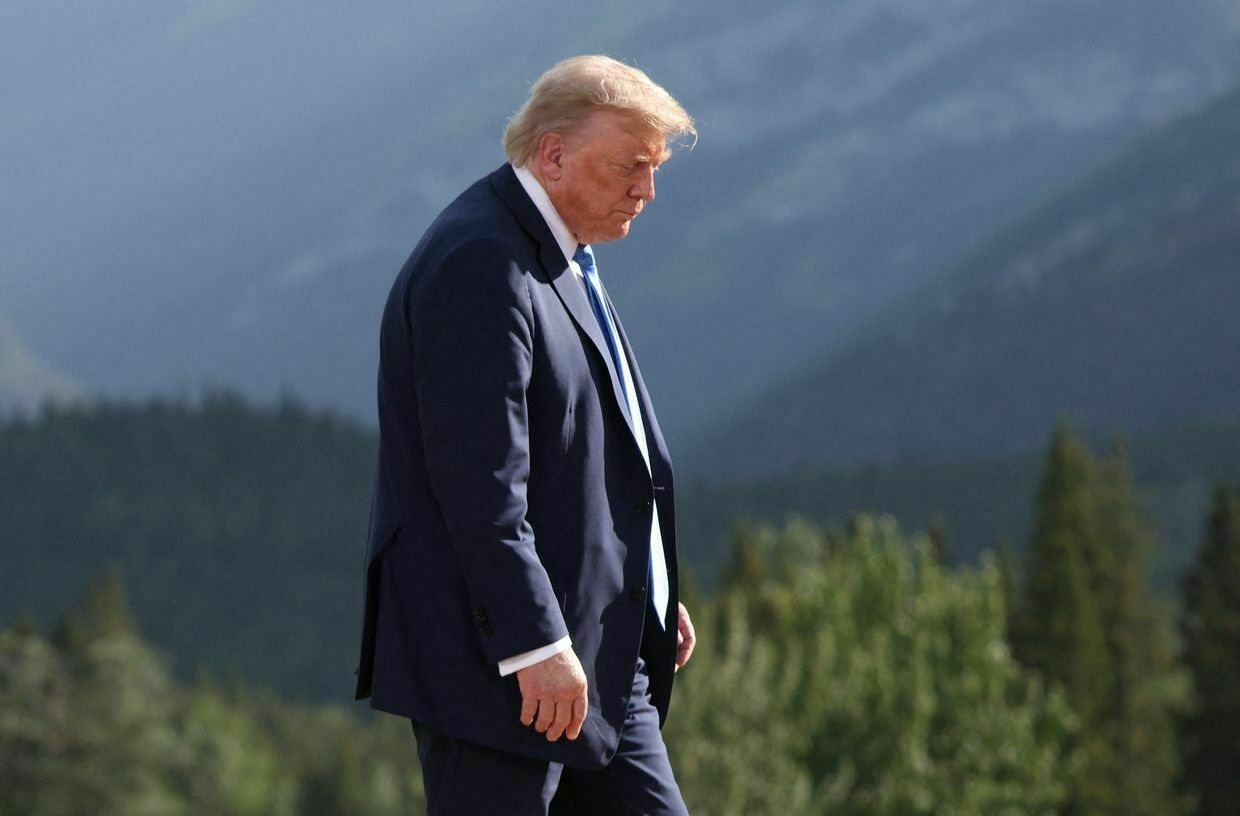
-
Germany allocates €400 million to boost Ukrainian drone programs
Germany is allocating €400 million to bolster three established Ukrainian drone manufacturing programs, rather than initiating new projects. This move aims to take these current projects to a higher level of efficiency, said Nikolas Lange, an analyst from the Munich Security Conference, in a comment to Ukrinform.
"We're not talking about new drones or copies of rockets like the Taurus. These are three proven projects set to receive an additional €400 million in funding, which will significantly enhance their execution," Lange noted.
According to Lange, Germany's lack of clear communication might have led to the misconception that new defense programs were being launched during the recent visit by Ukraine's president to Germany.
The analyst highlighted that the funding of drone programs is just one aspect of the broader support that Germany provides to Ukraine in defense. These investments are entirely justified as they bolster Ukraine's defense capabilities and open avenues for deeper collaboration between the Ukrainian and German industries. This direction merits further support, Lange added.
He also commented on the recent Ukrainian operation "Spider Web" by the Security Service of Ukraine (SBU), arguing that its results should be critically assessed due to the insufficient destruction of enemy aircraft.
"Personally, I believe all Russian strategic bombers' removal would be beneficial, not just for Ukraine, but for Europe's security as well," emphasized Lange.
Additionally, Lange expressed support for Ukraine's independent stance on security issues: "It's absolutely right that Kyiv rejects excessive external advice and prioritizes its own national interests."
During President Volodymyr Zelensky's visit to Berlin, he and German Chancellor Friedrich Merz agreed on expanding defense support. Subsequently, on June 12, German Defense Minister Boris Pistorius confirmed that Ukraine would receive long-range weapons funding without restrictions on their use.
-
US group designed to pressure Russia into peace in Ukraine disbanded by Trump administration, Reuters reports
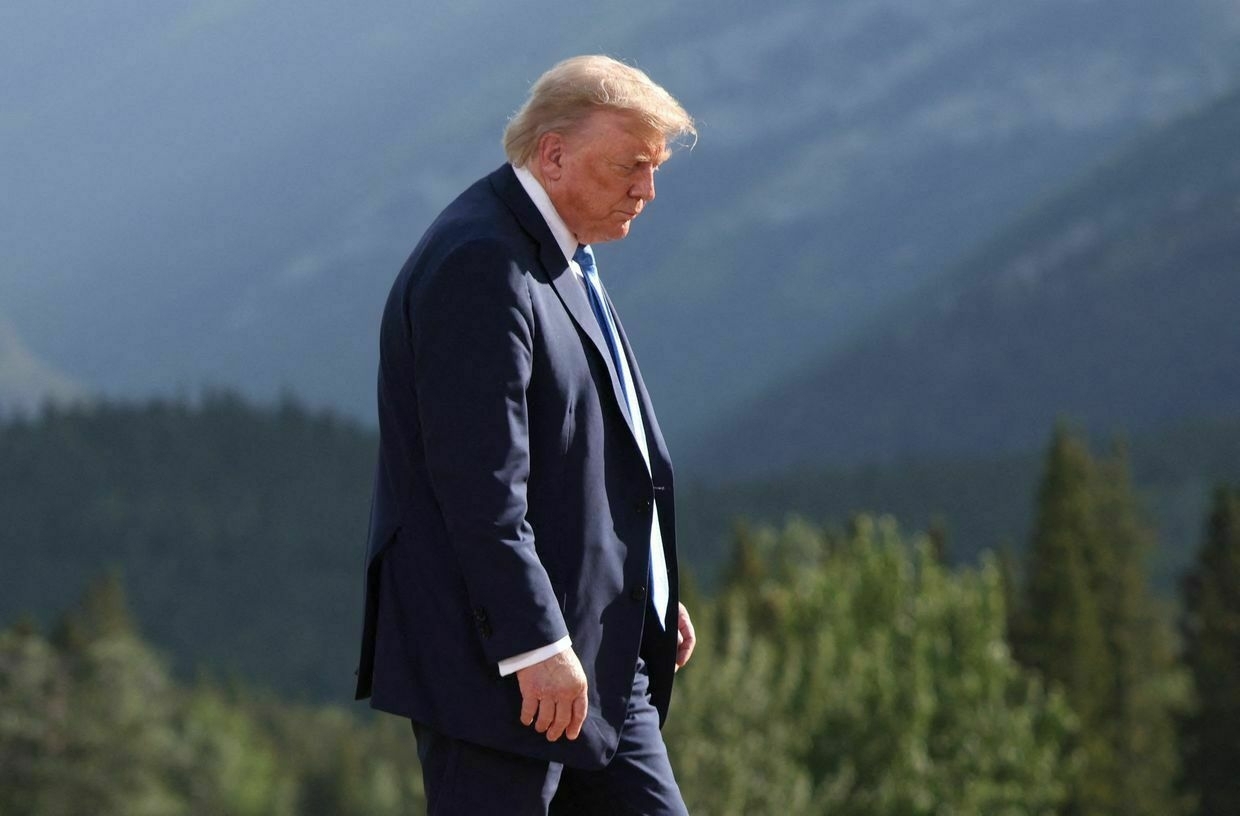
A U.S. government working group that formulated strategies for pressuring Russia into peace talks and ending the war in Ukraine has been disbanded by the White House, Reuters reported on June 17.
Officials cited by the news outlet said it was established this spring but became increasingly irrelevant as it became clear U.S. President Donald Trump wasn’t willing to apply any concrete pressure on Moscow during peace talks.
“It lost steam toward the end because the president wasn’t there. Instead of doing more, maybe he wanted to do less,” an anonymous official said.
As Ukraine and the U.S. continue to push for an unconditional ceasefire, Russia has maintained maximalist demands and rejected all such proposals.
At the same time it has escalated attacks on Ukrainian civilians, killing at least 15 people and injuring scores of others in the latest attack on Kyiv overnight on June 17.
Trump has expressed frustration with Moscow’s intransigence and growing violence but has yet to impose any new sanctions on Russia.
On June 16 while speaking in Canada ahead of a G7 summit, Trump said barring Russia from the G8 for its invasion of Ukraine in 2017 had been a “mistake."
According to Reuters, the working group, staffed by officials from the National Security Council, State Department, Treasury Department, the Pentagon and intelligence community, was decimated in a purge of personnel around three weeks ago.
Trump pledged to “stop the wars” when he was elected U.S. president for the second time but after just five months in office, the world is a far more violent place.
As well as Russia escalating attacks on Ukraine, Israel and Iran are now locked in a conflict that further threatens stability in the Middle East.
‘A brutal strike’ — Massive Russian missile and drone attack hits Kyiv, killing 15, injuring at least 114Russian drones and ballistic missiles targeted the capital overnight, killing 15 people and injuring at least 114, local authorities reported. Damage to civilian infrastructure has also been reported throughout the city.The Kyiv IndependentOlena Goncharova
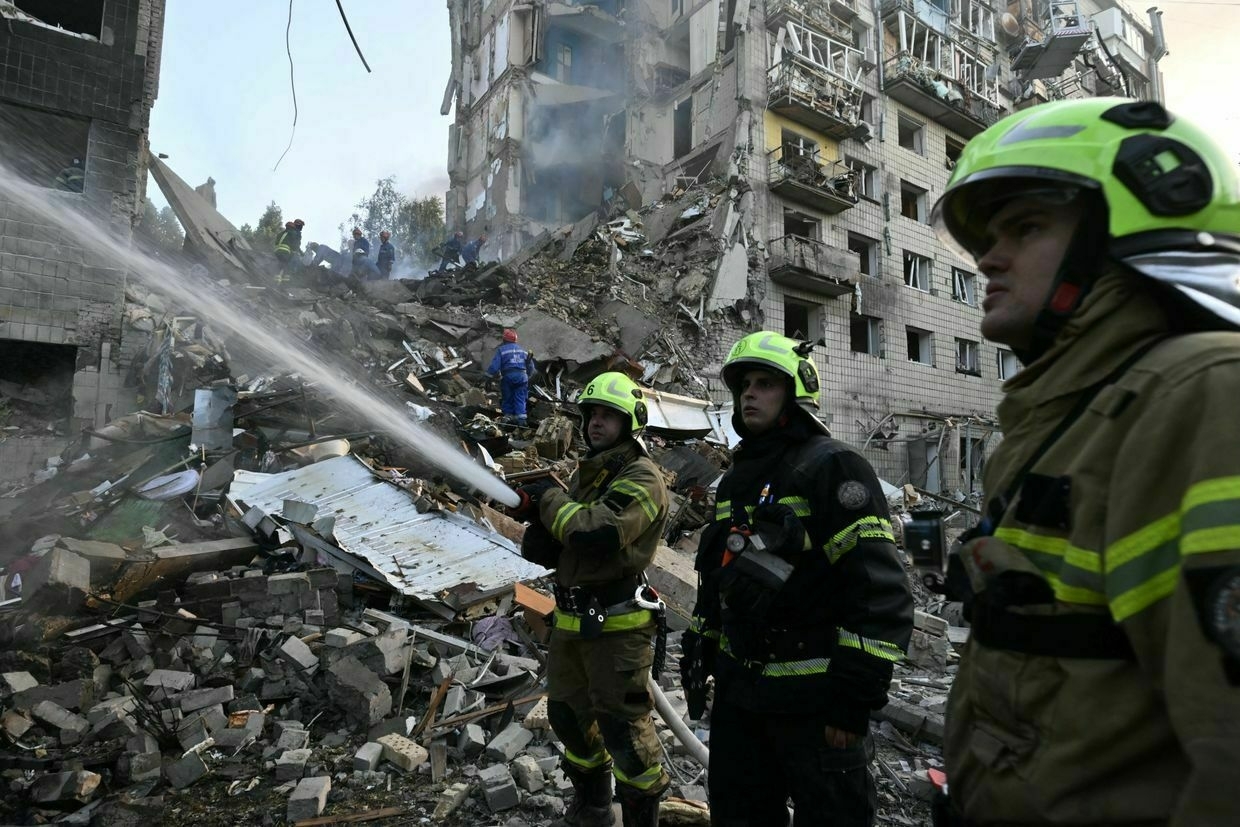
-
Cluster munitions used in overnight Russian strike on Ukraine, Kyiv mayor says
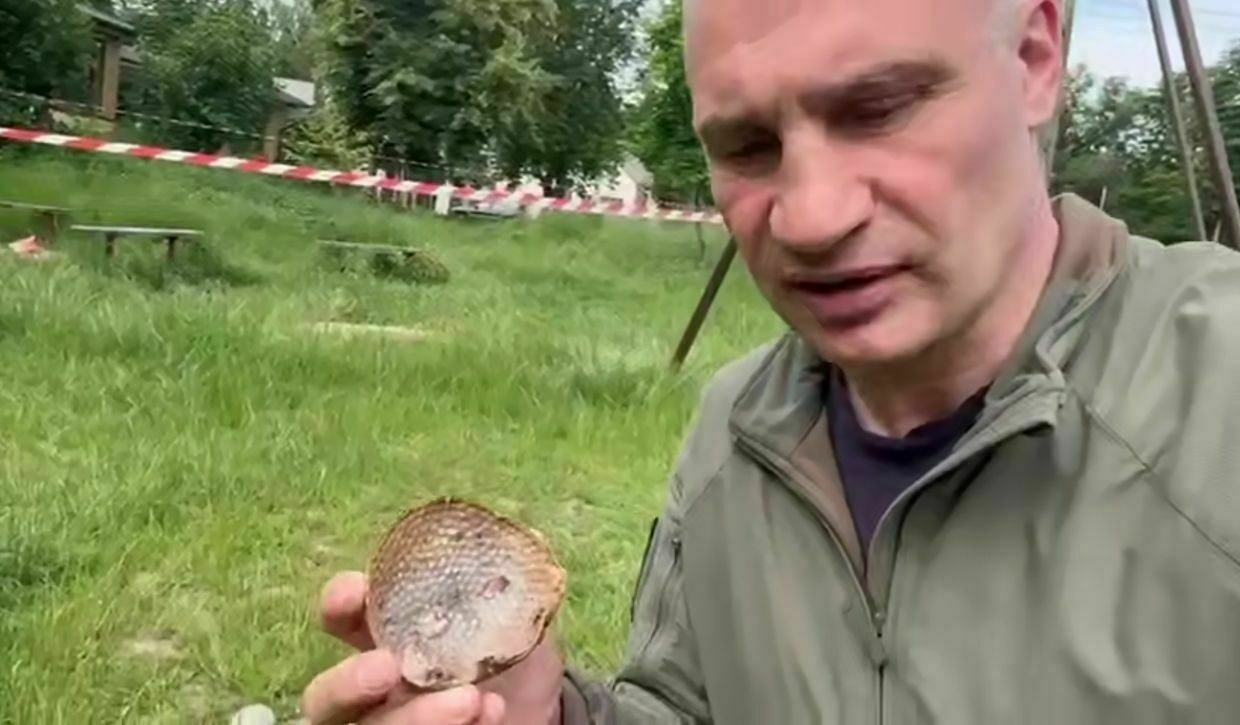
Emergency services in Kyiv have recovered fragments of cluster munitions following the overnight Russian missile and drone attack on June 17, Mayor Vitali Klitschko reported, calling it further evidence of Russia’s “genocide” against Ukrainians.
“In the capital’s Nyvky neighborhood, emergency workers are now finding these kinds of cluster munition parts,” Klitschko said in a statement shared on social media. “Another clear sign of the genocide Russia is committing against Ukrainians."
Cluster munitions are banned under international law by more than 100 countries due to their indiscriminate nature and the long-term threat they pose to civilians, especially when unexploded submunitions remain hidden in residential areas.
While Russia and Ukraine are not signatories to the Convention on Cluster Munitions, international humanitarian organizations have repeatedly condemned the use of such weapons in populated areas. Ukraine uses cluster munitions on the battlefield against Russian forces.
The mayor’s comments came hours after one of the largest and deadliest attacks on the Ukrainian capital in months, in which at least 15 people were killed and nearly 100 injured. The Russian strike, which lasted nearly nine hours, included waves of kamikaze drones, ballistic missiles, and what authorities now confirm were banned explosive parts.
President Volodymyr Zelensky called the assault “one of the most horrifying attacks on Kyiv,” saying more than 440 drones and 32 missiles were launched across Ukraine overnight.
“Such attacks are pure terrorism,” he said in a statement on social media. “And the whole world, the U.S., and Europe must finally respond as civilized societies respond to terrorists."
Zelensky confirmed that damage had been reported in eight districts of Kyiv, with emergency workers still searching for survivors beneath the rubble of a destroyed apartment block.
He added that strikes also hit Odesa, Zaporizhzhia, Chernihiv, Zhytomyr, Kirovohrad, Mykolaiv, and Kyiv regions. “Fifteen people are confirmed dead. My condolences to their families and loved ones,” Zelensky said.
Foreign Minister Andrii Sybiha also condemned the attack, calling it a “massive and brutal strike” timed deliberately to coincide with the G7 summit, which is taking place in Canada on June 16-17.
Russian drone strike on Odesa injures 13, including 1 childRussian drone strikes on Odesa early June 17 injured 13 people, including one child, regional authorities reported.The Kyiv IndependentLucy Pakhnyuk
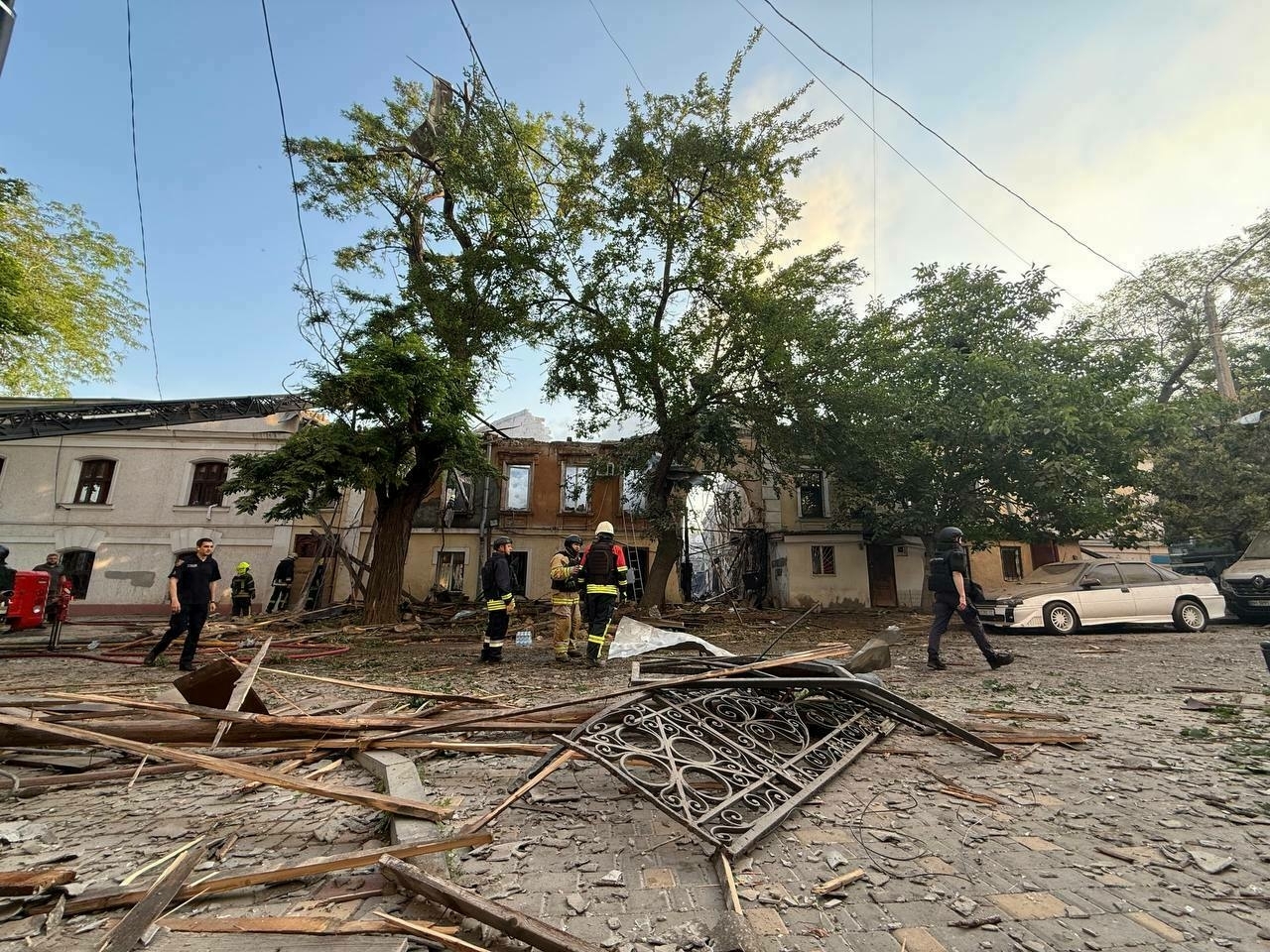
-
Shoigu visits North Korea on 'special assignment' from Putin
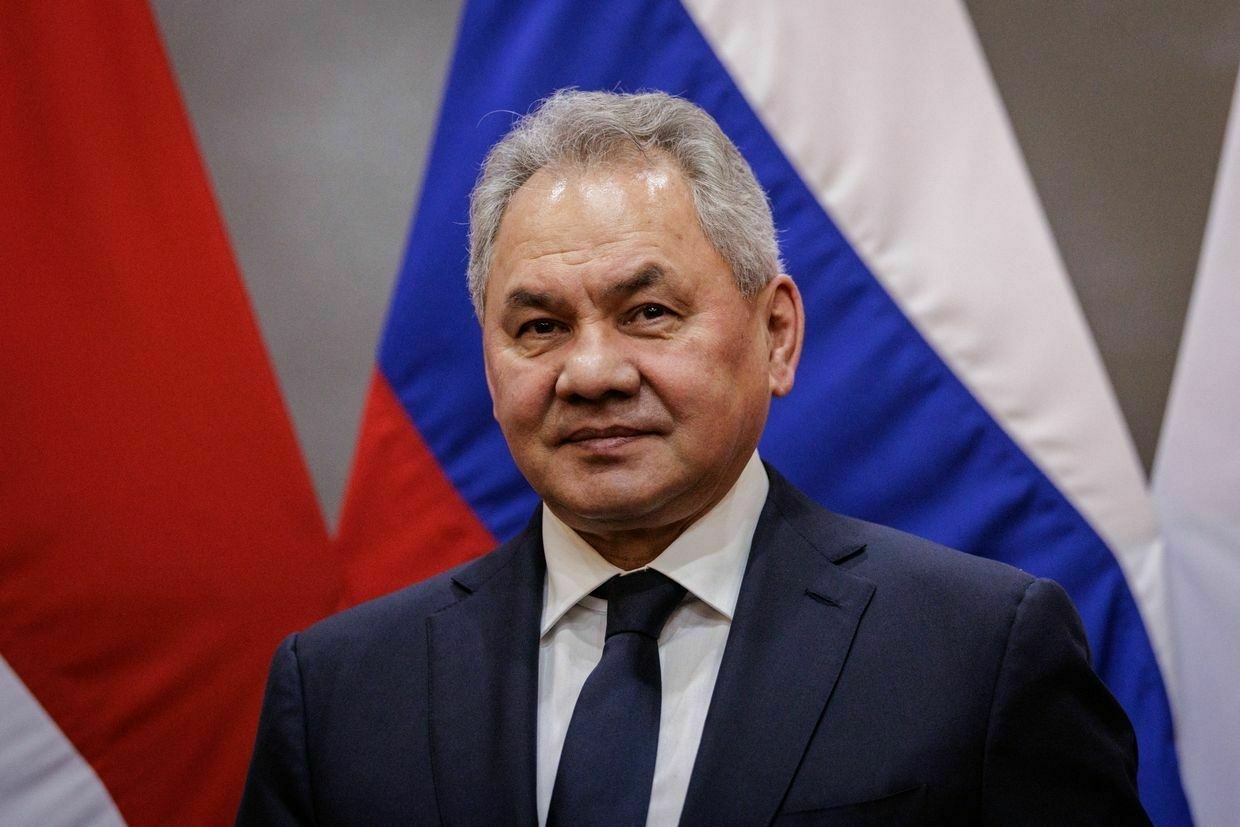
Russian Security Council Secretary Sergei Shoigu arrived in Pyongyang on June 17 on a “special assignment” from President Vladimir Putin, Russian state-controlled news agency TASS reported on June 17.
Shoigu is expected to meet with North Korean leader Kim Jong Un during the visit, TASS said, citing a correspondent on the ground. The purpose of the visit has not been officially disclosed, but it comes amid intensifying military cooperation between the two nations.
North Korea has emerged as one of Russia’s closest military partners during its full-scale invasion of Ukraine. Since late 2023, Pyongyang has supplied Moscow with millions of artillery shells, at least 100 ballistic missiles, and reportedly deployed more than 11,000 troops to assist Russian operations in Ukraine’s border regions.
According to a June 15 report from the United Kingdom’s defense intelligence, over 6,000 North Korean soldiers have been killed or wounded during operations in Russia’s Kursk Oblast. The U.K. said Pyongyang’s losses account for more than half of the North Korean contingent deployed to the region in fall 2024. British officials attributed the high casualties to highly attritional ground assaults.
Earlier this year, South Korea’s Joint Chiefs of Staff reported that North Korea sent an additional 3,000 soldiers to Russia in January and February to replenish losses.
In June 2024, Russia and North Korea signed a mutual defense pact obligating both countries to provide military assistance in the event of an external attack. Though North Korea only publicly acknowledged its participation in Russia’s war against Ukraine in April 2025, open-source reports and intelligence assessments have indicated its involvement since at least the fall of 2024.
The Multilateral Sanctions Monitoring Team (MSMT), a United Nations-affiliated watchdog, reported in May that North Korea and Russia had engaged in “unlawful military cooperation” in violation of multiple UN Security Council resolutions. This included arms transfers, deployment of combat troops, petroleum exports to North Korea exceeding UN caps, and mutual military training.
According to MSMT findings, Russian-flagged vessels delivered up to 9 million rounds of artillery and multiple rocket launcher ammunition from North Korea to southwestern Russia in 2024 alone. These weapons were subsequently used in attacks against Ukrainian infrastructure and civilian targets in cities including Kyiv and Zaporizhzhia.
Russia has also reportedly provided advanced military technology to North Korea, including ballistic missile guidance systems, electronic warfare platforms, and short-range air defense systems. One MSMT participating state confirmed the transfer of at least one Pantsir-class vehicle to Pyongyang.
Kim Jong Un described his country’s involvement in Russia’s war against Ukraine as a “sacred mission” during a public address in May.
Shoigu’s visit to North Korea comes amid intensified Russian aerial attacks across Ukraine, including the use of North Korean-made ballistic missiles containing components sourced from third-party suppliers.
Russia significantly improved North Korea’s shoddy KN-23 ballistic missiles, Ukraine’s Budanov saysIt was reported last year that around half fired at Ukraine by Russia malfunctioned and exploded in mid-air.The Kyiv IndependentKateryna Hodunova
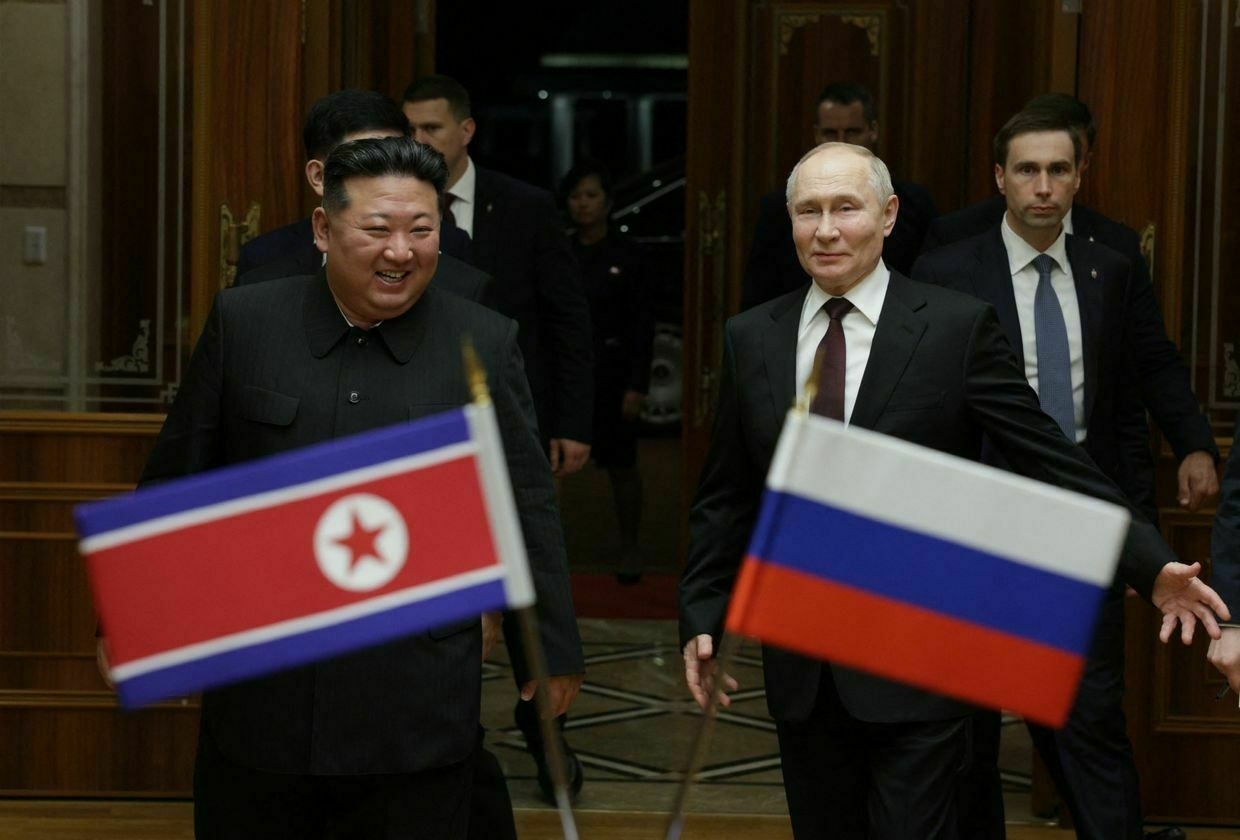
-
Russian drone strike on Odesa injures 13, including 1 child
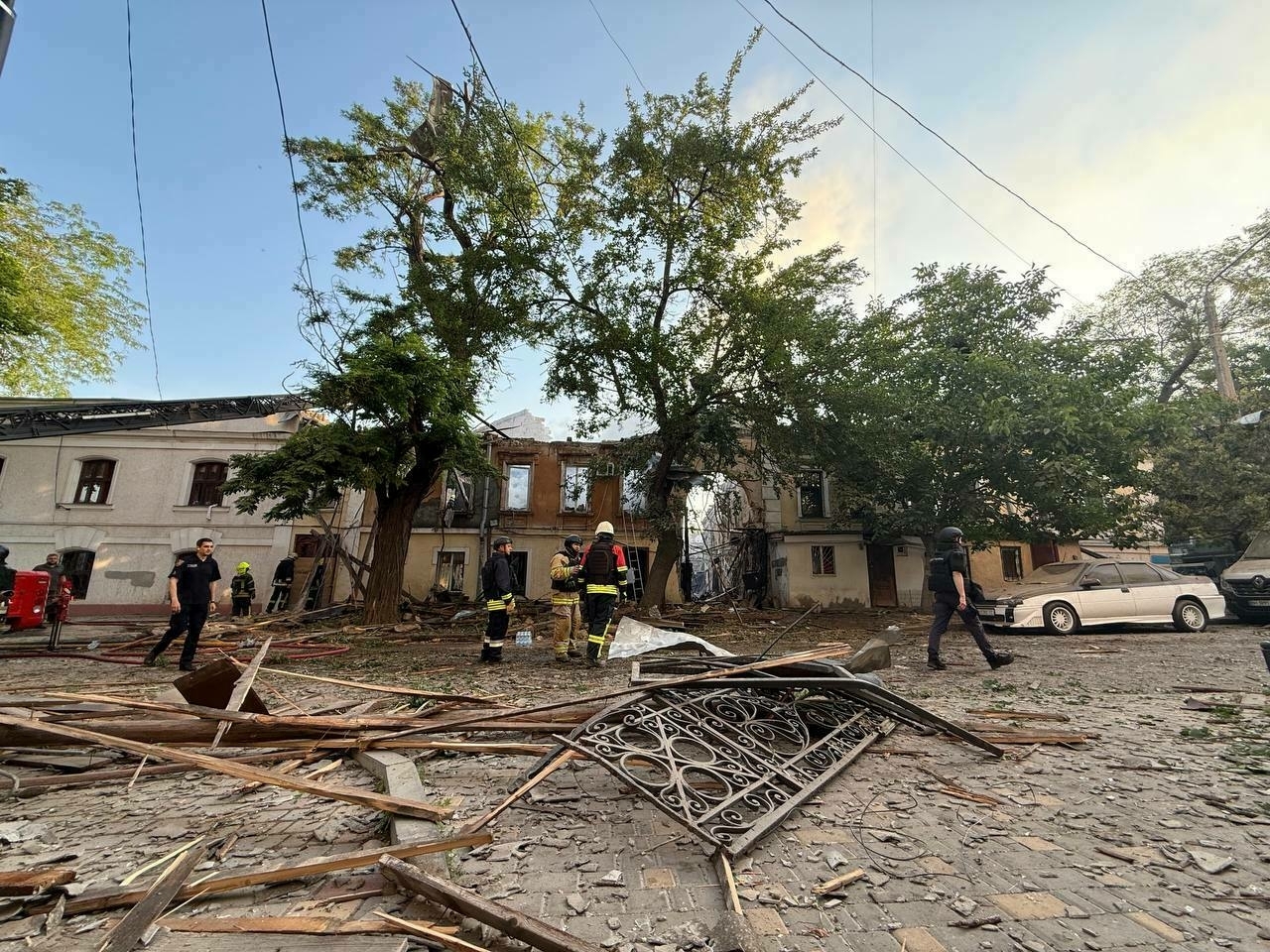
Editor’s note: This is a developing story and is being updated.
Russian drone strikes on Odesa early June 17 injured 13 people, including one child, regional authorities said.
All 13 victims were hospitalized as of 6:30 a.m. local time, Odesa Oblast Governor Oleh Kiper reported.
The attack also damaged civilian infrastructure across the city, including residential buildings.
Emergency services and volunteers are working at the scene to clear debris.
Overnight, Russia also launched a mass attack on Kyiv, injuring at least 18 people.
Odesa, a port city on Ukraine’s Black Sea coast with a population of around 1 million, has been a frequent target of Russian attacks throughout the full-scale war.
Russian military-industrial chemical plant halts operations after Ukrainian drone strikeThe Nevinnomyssk Azot chemical plant — a key supplier to the Kremlin’s military-industrial complex — has suspended production following Ukrainian drone strikes, Russian independent media reported on June 16.The Kyiv IndependentLucy Pakhnyuk
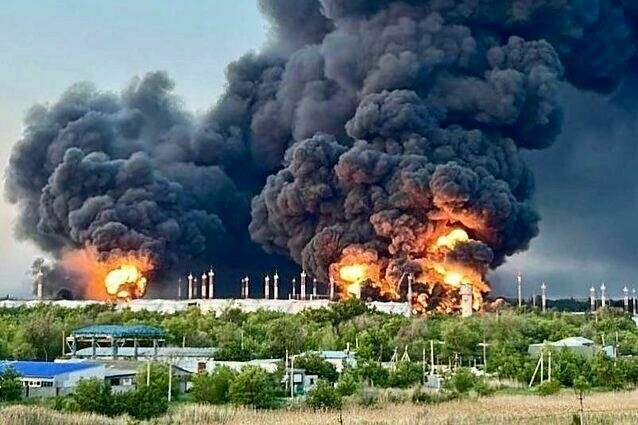
-
Russian military-industrial chemical plant halts operations after Ukrainian drone strike
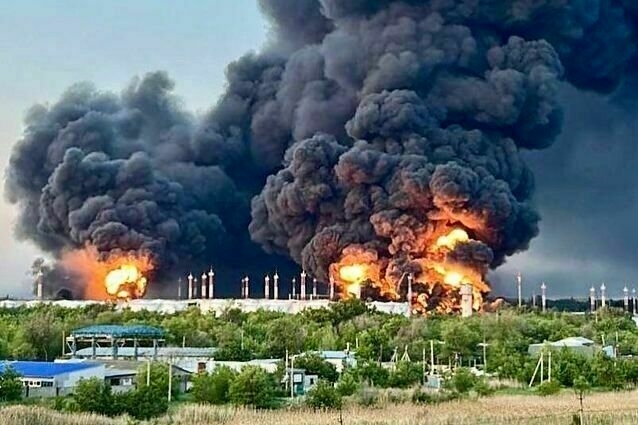
The Nevinnomyssk Azot chemical plant — one of Russia’s largest producers of nitrogen fertilizer and ammonia and a key supplier to the Kremlin’s military-industrial complex — has suspended production, Russian independent media outlet Astra reported on June 16.
According to Astra, the chemical plant suspended production as a direct result of Ukrainian drone strikes. The strike — which was confirmed by Ukraine’s General Staff on June 14 — targeted two major military-industrial facilities in Russia, including the Nevinnomyssk Azot plant in Stavropol Krai. The facility reportedly supplied raw materials and components for Russia’s weapons and fuel production.
Nevinnomyssk Azot is among Russia’s top producers of ammonia and nitrogen fertilizers and hosts the country’s only production lines for methyl acetate and high-purity acetic acid. It also operates Russia’s first melamine production facility, according to open-source data.
According to Andrii Kovalenko, head of Ukraine’s Center for Countering Disinformation at the National Security and Defense Council, the plant produces up to one million tons of ammonia and over one million tons of ammonium nitrate annually, is “a critical element of Russia’s military-industrial complex."
Kovalenko noted that ammonium nitrate is a key component for explosives and artillery shells. He added that the plant also synthesizes dual-use chemicals such as melamine, acetic acid, methanol, and potassium nitrate — all frequently used in the production of grenade launchers, mines, and rocket charges.
Since 2024, the plant has also been producing water-soluble fertilizers, which he said have been adapted to serve military chemical needs as part of Russia’s war in Ukraine.
The chemical plant is part of the EuroChem Group, owned by Russian billionaire Andrey Melnichenko, who is currently sanctioned by Canada, the European Union, Japan, and the United Kingdom.
Russia evading oil sanctions with illegal transfers near Greece, Cyprus, HUR saysAccording to Ukraine’s military intelligence (HUR), the vessel, operating without Western insurance, is part of Russia’s expanding shadow fleet used to bypass G7 and EU sanctions on Russian oil exports.The Kyiv IndependentTim Zadorozhnyy
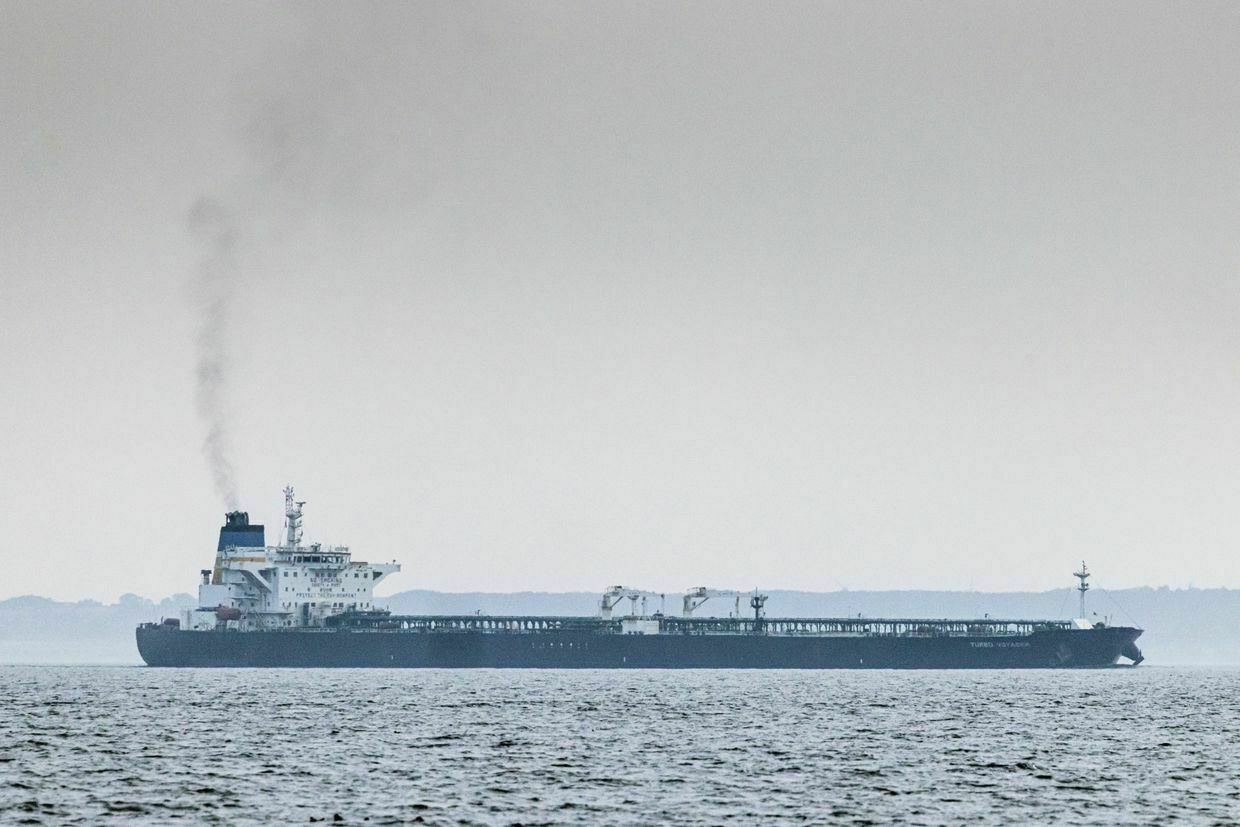
-
Trump to depart G7 summit ahead of June 17 meeting with Zelensky
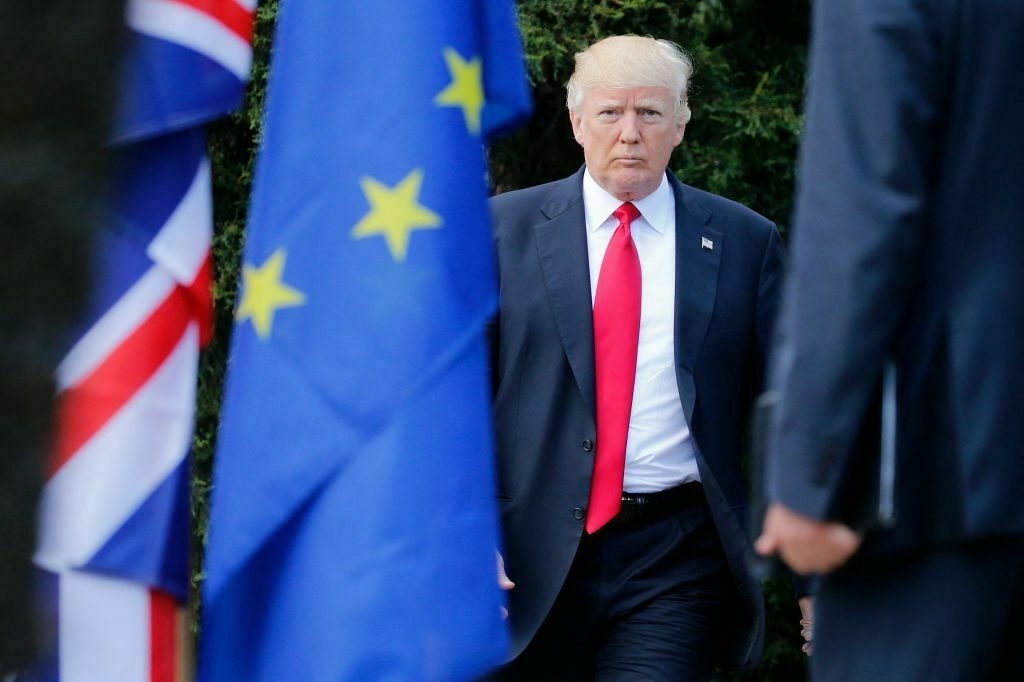
Editor’s note: This is a breaking story and is being updated.
U.S. President Donald Trump is set to depart the G7 Leaders' Summit late on June 16, ahead of an anticipated high-stakes meeting with President Volodymyr Zelensky on June 17.
White House Press Secretary Karoline Leavitt said that the depature comes as Trump is set to attend to “important matters."
It was not immediately clear as to whether Trump will return for the final day of the summit on June 17.
Zelensky was expected to meet with Trump on the sidelines of the G7 summit on June 17, marking their third in-person meeting since the American president took office in January. The proposed meeting may serve as an inflection point for Zelensky as pressure mounts on Trump from Western allies.
“Both teams are working to ensure we meet,” Zelensky said on June 14 during a closed-door briefing attended by the Kyiv Independent.
High stakes, low resolve: What Ukraine can expect from the upcoming G7 summitAs world leaders prepare to gather in the remote community of Kananaskis in Alberta, Canada for the Group of Seven (G7) Leaders’ Summit on June 15-17, Russia’s war in Ukraine once again holds center stage — but views on how to address the three-year conflict diverge sharply. In the five monthsThe Kyiv IndependentDmytro Basmat
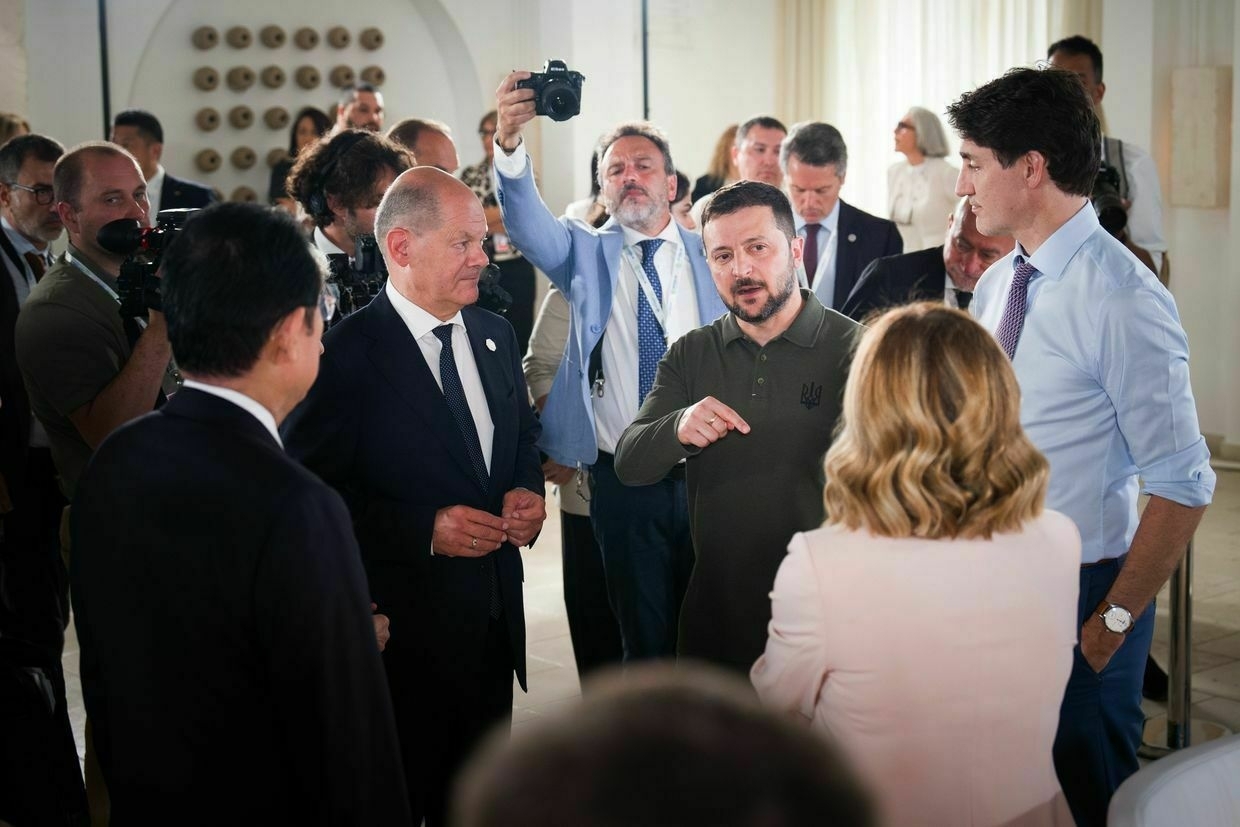
-
Kyiv hit by Russian drones and ballistic missiles, over a dozen injured
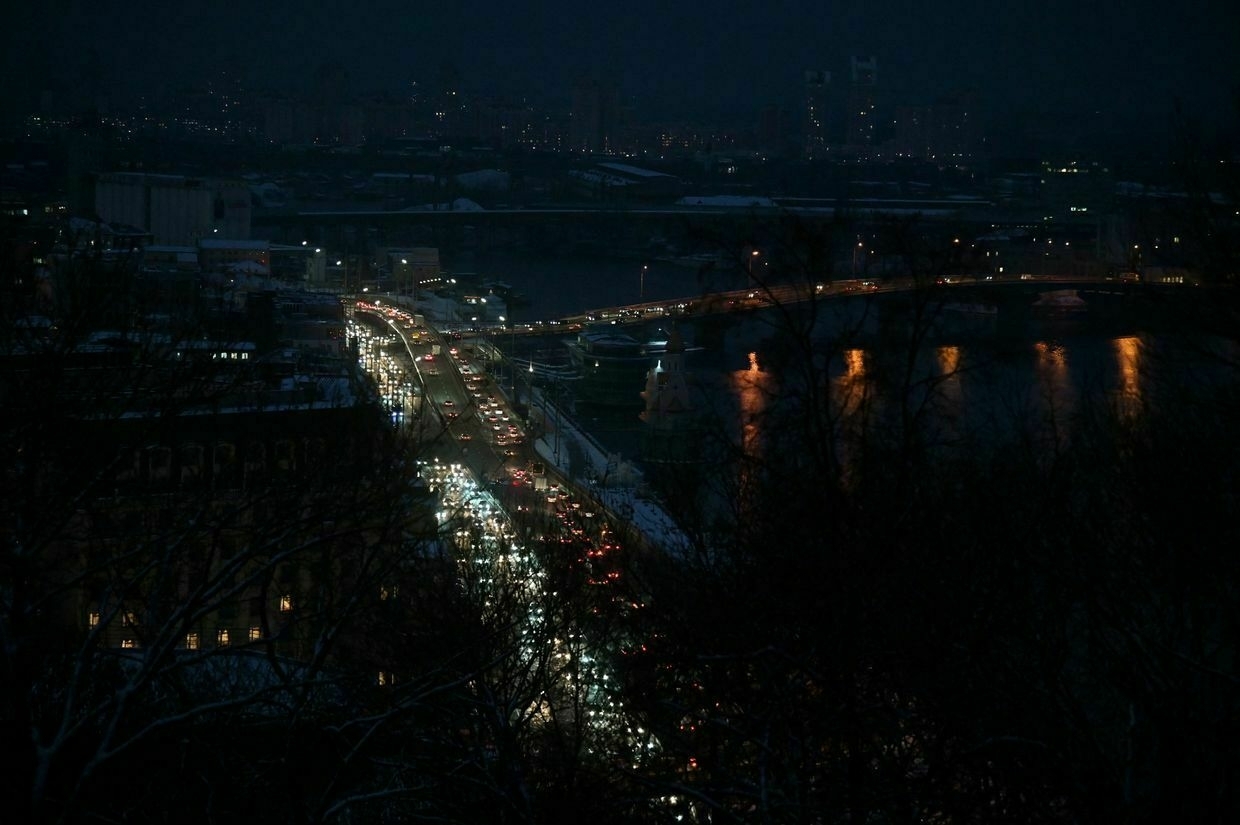
Editor’s note: This is a developing story and is being updated as new details emerge.
Kyiv came under another mass Russian attack in the early hours of June 17, involving ballistic missiles and drones.
Kyiv Independent journalists on the ground reported the sounds of drones and multiple explosions throughout the capital.
At least nine people were injured in the city’s Sviatoshynskyi district, while 11 others were wounded in the Solomianskyi district, including a woman in serious condition, according to Kyiv Mayor Vitali Klitschko. Six people were hospitalized.
The upper floors of a residential building in Solomianskyi were damaged, and debris fell at two locations in the Darnytskyi district, one of which caught fire. First responders were also dispatched to the Obolonskyi district.
The attack followed a series of drone strikes overnight on June 16 targeting Kyiv Oblast, including both the capital and surrounding settlements. In the Obukhiv district, a 60-year-old man was injured, according to regional authorities.
With no new US aid packages on the horizon, can Ukraine continue to fight Russia?The U.S. has not announced any military aid packages for Ukraine in almost five months, pushing Kyiv to seek new alternatives. But time is running out quickly as Russian troops slowly advance on the eastern front line and gear up for a new summer offensive. “While Ukraine’s dependence onThe Kyiv IndependentKateryna Hodunova
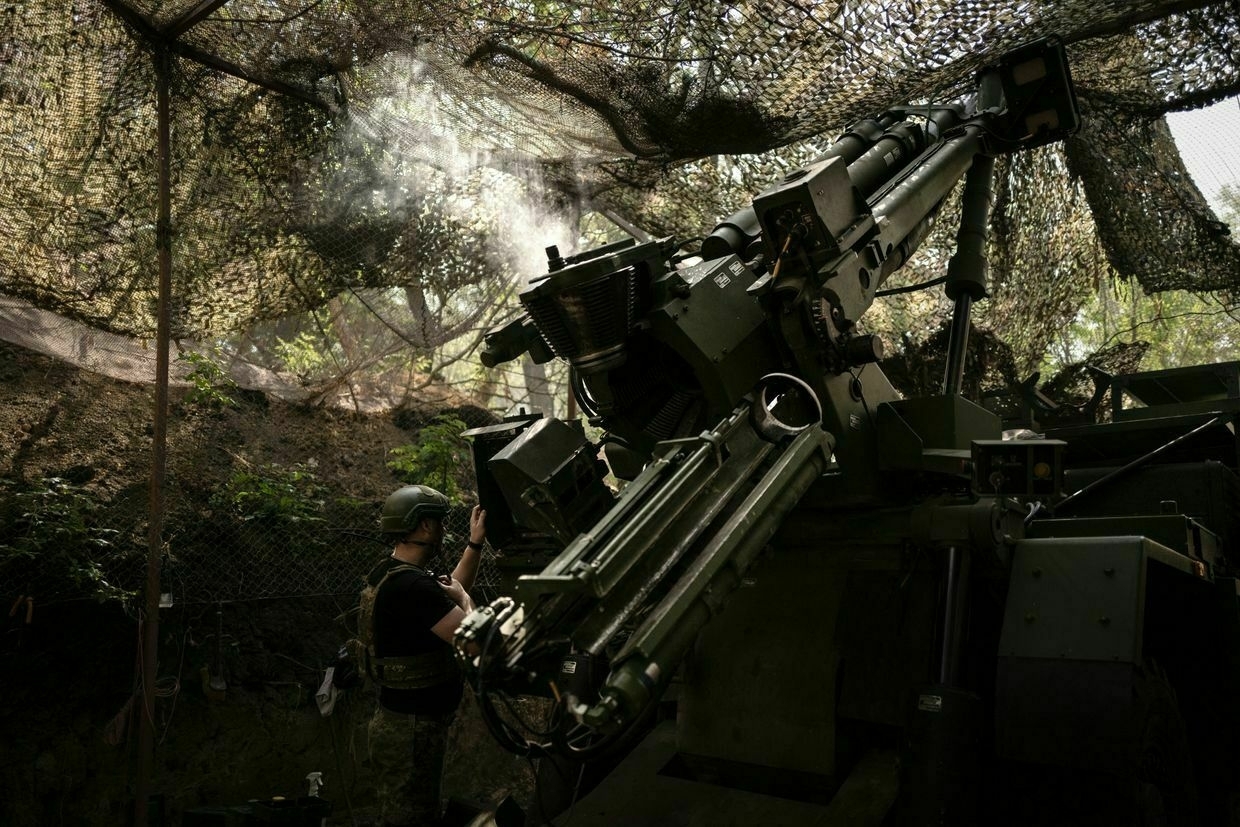
-
Canada reportedly set to announce new military aid for Ukraine at G7
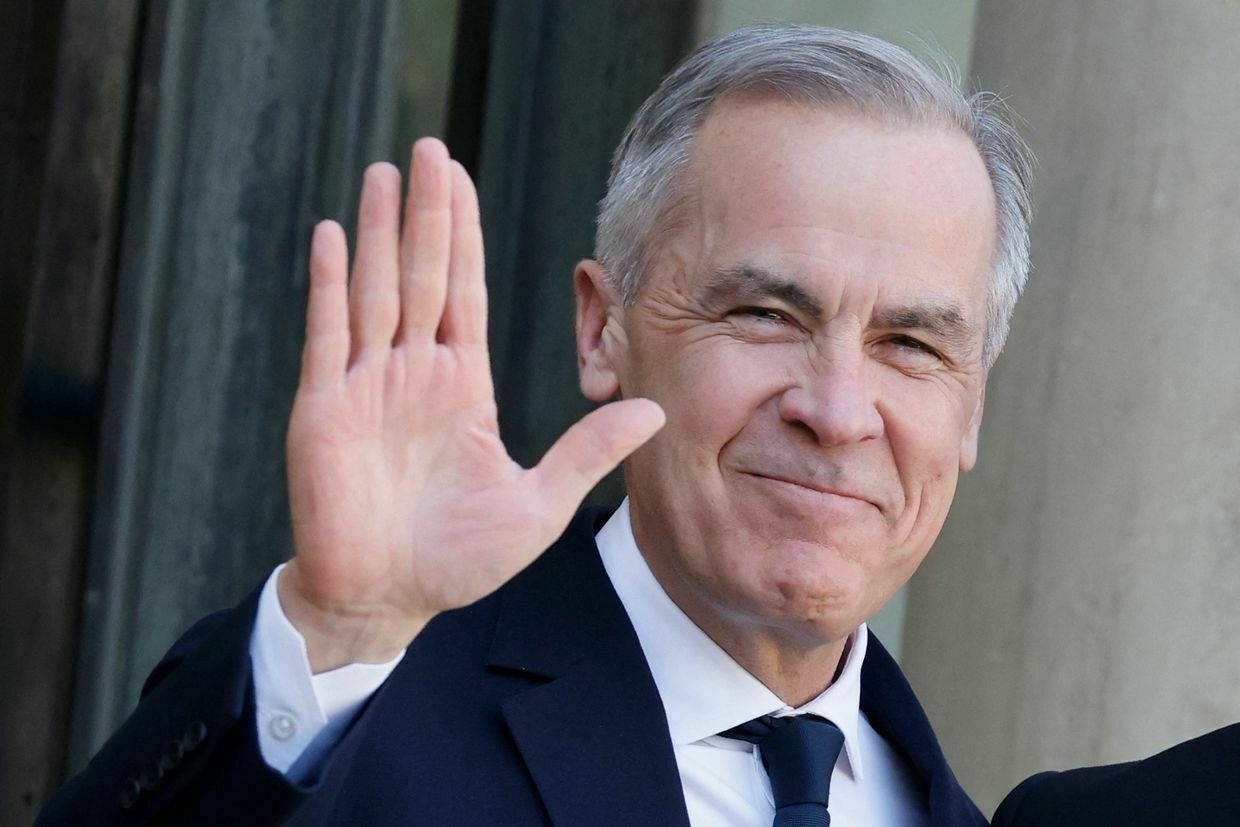
Canada’s Prime Minister Mark Carney is expected to announce additional support for Ukraine during the G7 summit, CBC News reports on June 16, citing government sources.
Canada, which holds the G7 presidency in 2025, invited President Volodymyr Zelensky to participate in what will be his fourth — and arguably most fragile — G7 Leaders' Summit since the outbreak of the full-scale invasion in 2022. Carney is also expected to hold a one-on-one meeting with the Ukrainian president.
As part of Carney’s pledge to boost defense spending this year, Ottawa has allocated two billion Canadian dollars ($1.46 billion USD) for military aid to Ukraine and the expansion of broader defense partnerships. According to one source, the government is set to disclose on June 20 how much of that funding will be directed specifically to Ukraine and what it will support.
Canada has been a strong ally of Ukraine, providing 19.5 billion Canadian dollars ($13.5 billion) in assistance, including 4.5 billion Canadian dollars ($3.1 billion) in military aid.
Following their bilateral talks, G7 leaders will join outreach countries for discussions on Ukraine’s ongoing fight against Russia.
Meanwhile, European Commission President Ursula von der Leyen and European Council President Antonio Costa urged G7 nations to ramp up pressure on Moscow through tougher sanctions, arguing that it is key to securing a ceasefire in Russia’s war against Ukraine.
“To achieve peaceful strength we must put more pressure on Russia to secure a real ceasefire, to bring Russia to the negotiating table, and to end this war. Sanctions are critical to that end,” von der Leyen said at a press briefing on June 15, attended by a Kyiv Independent journalist.
Von der Leyen emphasized that economic sanctions have been effective since the start of Russia’s full-scale invasion. She pointed out that joint G7 and European Union measures have reduced Russian oil and gas revenues by nearly 80% since February 2022.
"(T)he sanctions are working, and we will do more," she said.
-
Hungary and Slovakia challenge EU's plan to phase out Russian energy imports
In a high-stakes meeting of EU energy ministers, Hungary and Slovakia threw a wrench into the European Commission's (EC) plan to phase out Russian oil, gas, and nuclear fuel. Hungarian Foreign Minister Péter Szijjártó announced this development during a press briefing streamed live on Facebook.
Szijjártó dubbed the proposed strategy the "von der Leyen–Zelensky plan," emphasizing that it jeopardizes Hungary's energy supply. He warned it could halt electricity exports to Ukraine, which receives about 40% of its power from Hungary. The Hungarian official argued that the plan might also devastate the economies of Central European countries.
EC president Ursula von der Leyen put forward a "roadmap" to end Russian energy imports to the EU by 2027. Despite the clear timeline, Belgium and France have rejected the plan, according to Politico, due to insufficient details on the economic and legal ramifications.
The Financial Times reported that the European Commission is set to propose a ban on Russian gas imports under trade law, expected to be announced on Tuesday, June 17. The proposal seeks an immediate stop to the contracting of new Russian gas deals, requiring companies to provide customs officials with comprehensive details of gas contracts to confirm the absence of Russian gas.
However, Hungary and Slovakia are poised for exception under the plan, with allowances for a gradual cessation of Russian gas contracts until 2027, and a halt to short-term contracts by 2026. An FT diplomatic source cited the importing countries’ concerns over legal challenges, including the potential need to compensate Russia for breached contracts.
-
Ukraine moves forward on lithium mining under US minerals deal, NYT reports
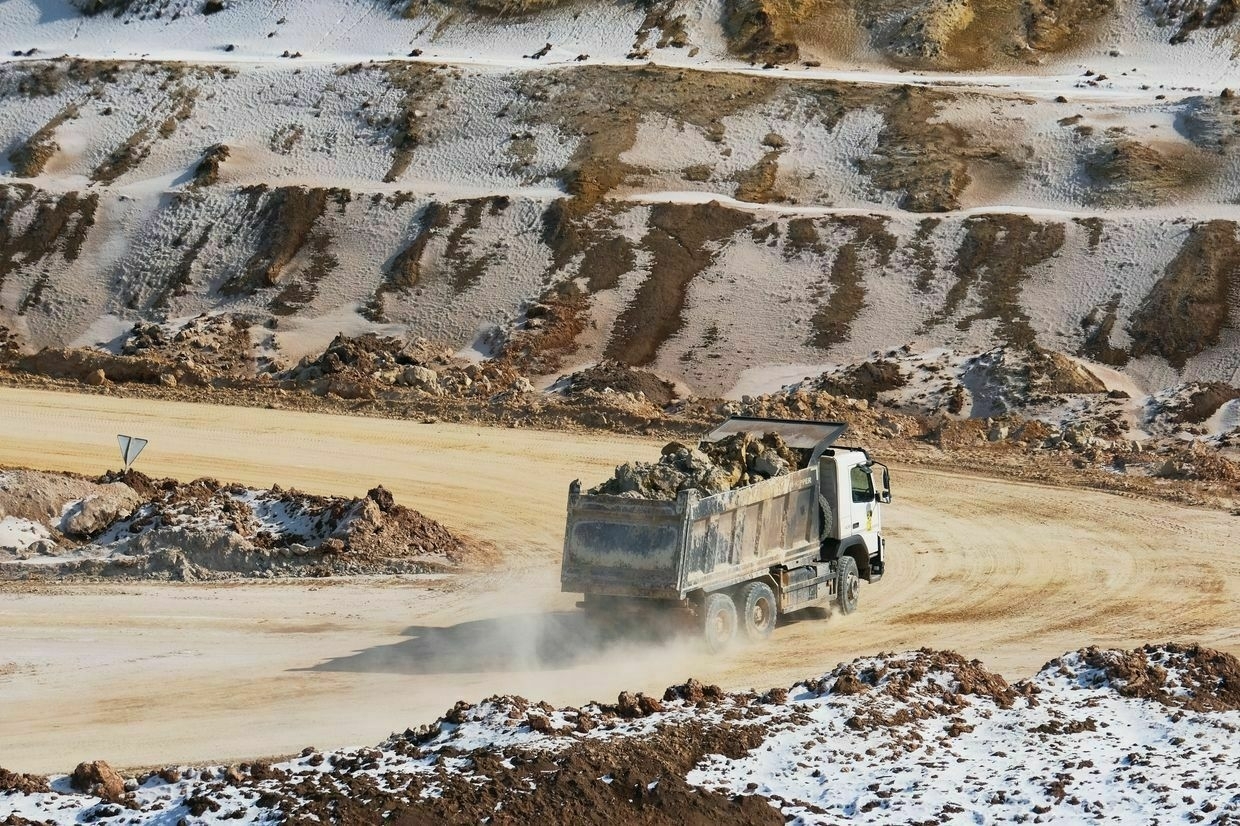
More than a month after Ukraine signed a landmark agreement granting the United States a stake in its mineral reserves, Kyiv has approved initial steps to open one of its largest lithium deposits to private investors, the New York Times (NYT) reported, citing two government officials.
On June 16, the Ukrainian government agreed to begin drafting recommendations for a bidding process to develop the Dobra lithium field in central Ukraine. According to the officials, who spoke to NYT on condition of anonymity, this would be the first project advanced under the U.S.-Ukraine minerals deal.
The Dobra lithium ore site is located in the Novoukrainskyi district of Kirovohrad Oblast, rougly 300 kilometers southeast of Kyiv.
The deal, signed by President Volodymyr Zelensky on May 12, is aimed at deepening economic ties, boosting Ukraine’s reconstruction, and positioning the country as a supplier of strategic resources to the U.S.
Among the likely bidders for the Dobra field is a consortium including TechMet, an energy investment firm partly owned by the U.S. government, and billionaire Ronald S. Lauder, a close associate of the U.S. President Donald Trump. The group has long expressed interest in the Dobra site and encouraged Zelensky to open it to bids last year.
Under the broader agreement, half of the revenues from mineral extraction would go to a joint U.S.-Ukraine investment fund. While the Ukrainian government would reinvest its share into the domestic economy, the United States would claim a portion of the profits — a structure Mr. Trump has framed as partial repayment for U.S. assistance to Ukraine.
TechMet CEO Brian Menell said investors were pushing for production-sharing agreements, which offer long-term stability and tax incentives. Monday’s step toward opening the Dobra field is based on such an arrangement, according to the outlet.
Ukraine war latest: Russia ramps up its summer offensive in several directions, seeks to encircle KostiantynivkaKey developments on June 16: * Russia ramps up its summer offensive in several directions, Ukraine’s military says * Ukraine receives 1,245 bodies of fallen soldiers and citizens, concluding Istanbul repatriation deal * ‘Russians lie about everything’ — Ukraine hits out at Kremlin claims after yet another drone strike on Kyiv * Russia toThe Kyiv IndependentThe Kyiv Independent news desk
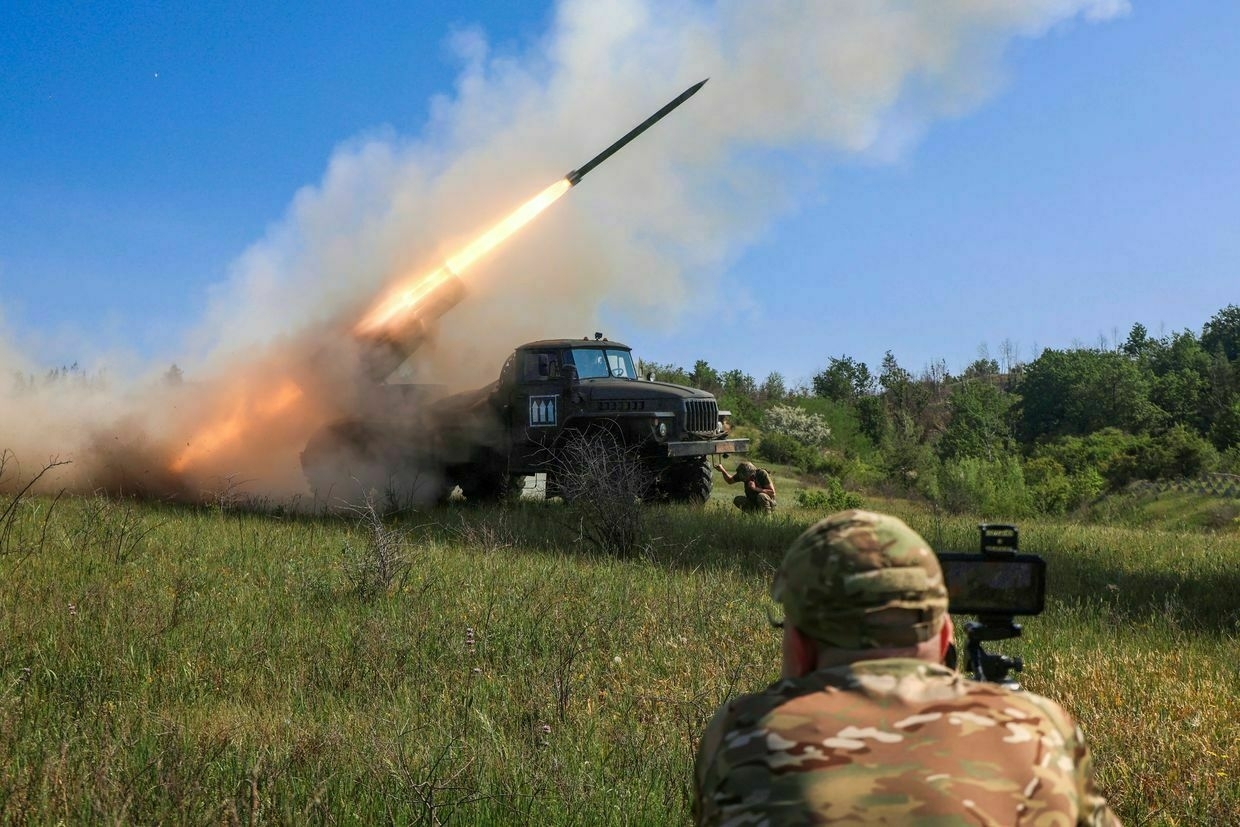
-
Ukraine war latest: Russia ramps up its summer offensive in several directions, seeks to encircle Kostiantynivka
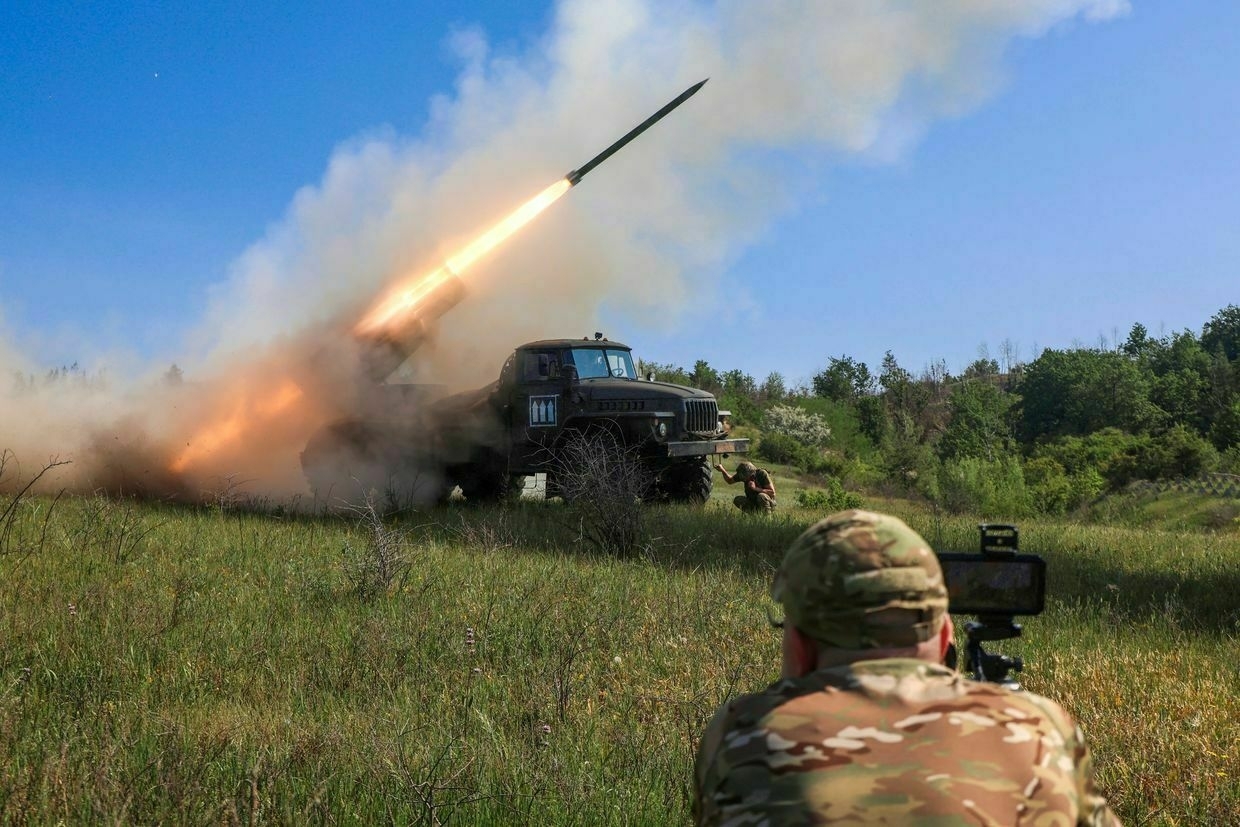
Key developments on June 16:
- Russia ramps up its summer offensive in several directions, Ukraine’s military says
- Ukraine receives 1,245 bodies of fallen soldiers and citizens, concluding Istanbul repatriation deal
- ‘Russians lie about everything’ — Ukraine hits out at Kremlin claims after yet another drone strike on Kyiv
- Russia to demand Ukraine destroy Western weapons to end war, senior Kremlin official says
Russian forces have intensified offensive operations across multiple front-line areas, said Victor Tregubov, a spokesperson for Ukraine’s Khortytsia group of forces, on June 16.
According to Tregubov, Russian troops have ramped up attacks, particularly in the Novopavlivka and Kharkiv sectors, which is an unusual development for these areas.
Ukraine’s General Staff reported that Russian forces launched attacks in 12 directions, resulting in 99 recorded clashes. Ukrainian soldiers repelled 17 attacks in the Novopavlivka sector alone, according to the latest update.
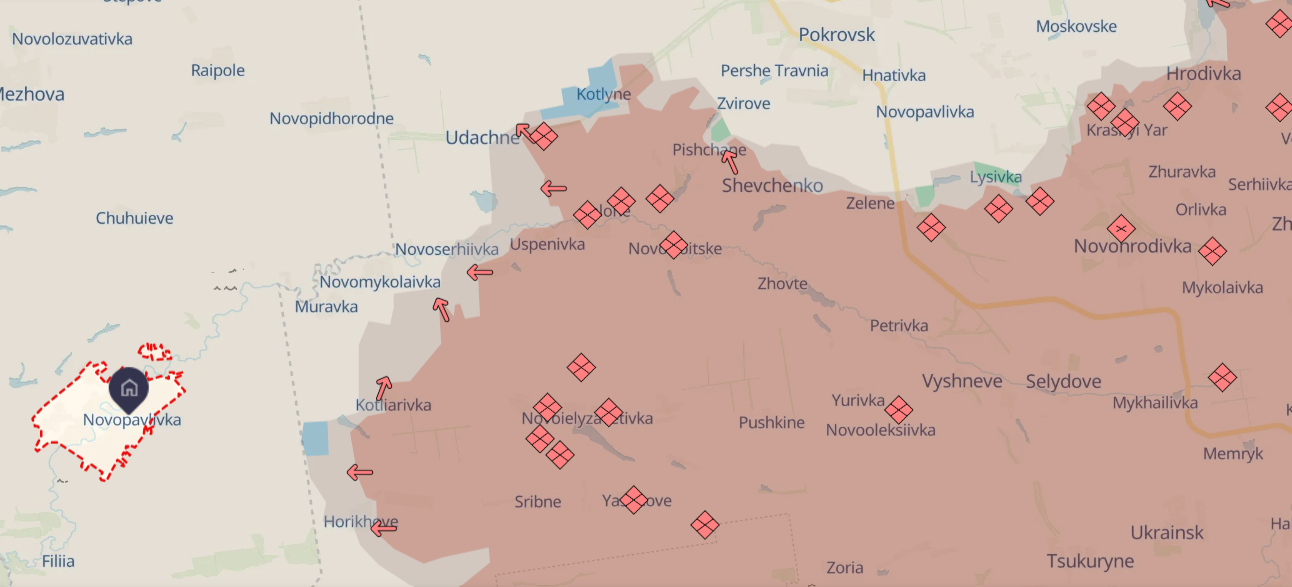
“This signals that we have the expected summer increase in activity,” Tregubov said.
Speaking on national television, he said that the surge in activity near Novopavlivka suggests Russian forces are attempting to push into Dnipropetrovsk Oblast, which neighbors the embattled Donetsk Oblast.
“But they (Russia) have failed to succeed,” the spokesperson added.
In Donetsk Oblast, Russia is trying to encircle Kostiantynivka, one of the key Ukrainian logistics hub in the region since the start of the full-scale invasion, by attacking the city from three directions, according to Tregubov.
From buffer zone to new front: Russia pushes deeper into Sumy OblastIn March 2025, as Ukrainian forces made their final retreat from Sudzha in Russia’s Kursk Oblast, new grey spots began to appear on open-source maps on the other side of the state border, in Ukraine’s Sumy Oblast. For the first time since 2022, when Moscow’s forces retreatedThe Kyiv IndependentFrancis Farrell
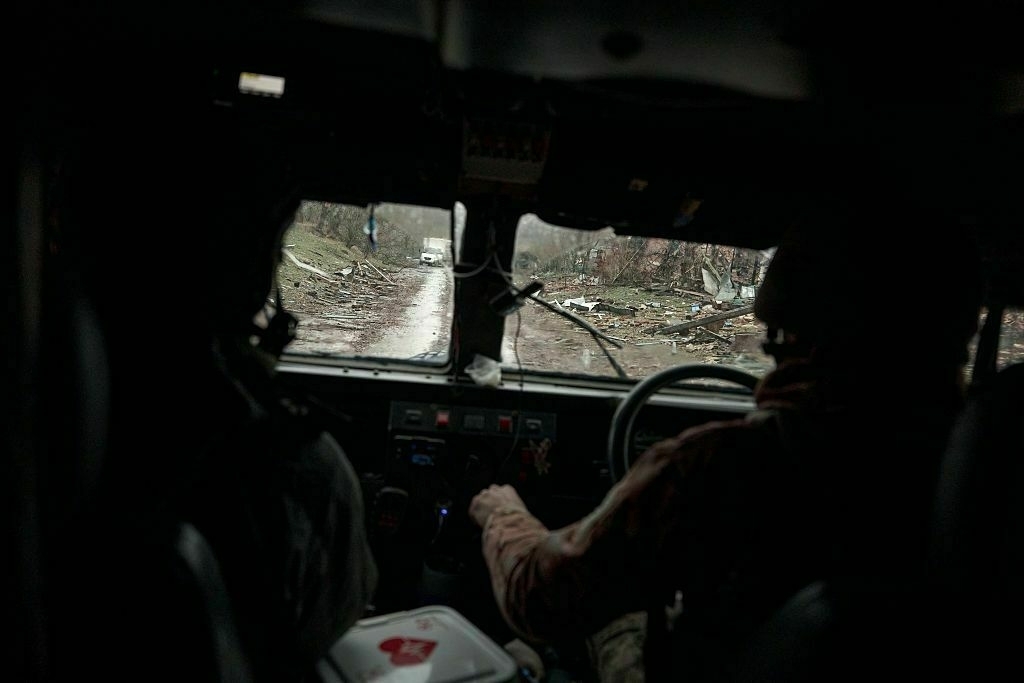
Ukraine receives 1,245 bodies of fallen soldiers and citizens, concluding Istanbul repatriation dealUkraine has received the bodies of another 1,245 fallen Ukrainian soldiers and citizens under agreements reached during recent peace negotiations in Istanbul, the Coordination Headquarters for the Treatment of Prisoners of War (POWs) announced on June 16.
The latest repatriation marks the final stage of the exchange agreement, bringing the total number of Ukrainian bodies returned under the deal to 6,057.
“Each of them undergoes identification. Because behind every one of them is a name, a life, a family waiting for answers,” Defense Minister Rustem Umerov wrote on Facebook.
“We are not stopping. Ahead lies the next stage: we continue the fight to bring back our prisoners of war. We bring them back. We remember…"
The operation was coordinated by Ukraine’s Security Service (SBU), the Ombudsman’s Office, the military, the Interior Ministry, and other state and defense institutions, with assistance from the International Committee of the Red Cross.
Vladimir Medinsky, an aide to Russian President Vladimir Putin and member of the Russian delegation at the Istanbul talks, claimed that Russia received the bodies of 78 deceased servicemen.
Interior Minister Ihor Klymenko said on June 16 that Russia has handed Kyiv the bodies of its own soldiers mixed in with those of Ukrainian soldiers during recent repatriation of the fallen.
“This could have been done by the Russians on purpose to increase the number of bodies transferred and to load our (forensic) experts with work, adding to all this cynical information pressure. Or it could be their usual negligent attitude toward their own people. In any case, we also identify these bodies,” Klymenko said.
With no new US aid packages on the horizon, can Ukraine continue to fight Russia?The U.S. has not announced any military aid packages for Ukraine in almost five months, pushing Kyiv to seek new alternatives. But time is running out quickly as Russian troops slowly advance on the eastern front line and gear up for a new summer offensive. “While Ukraine’s dependence onThe Kyiv IndependentKateryna Hodunova
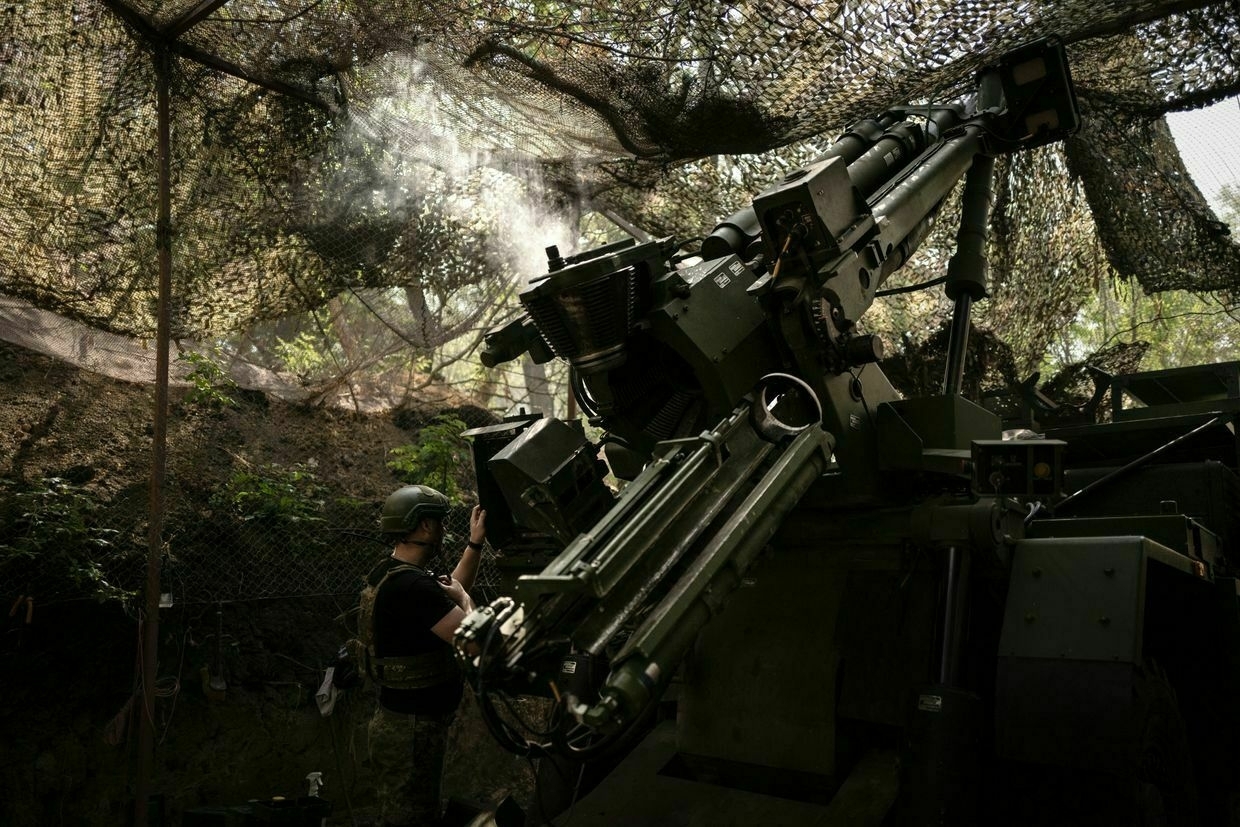
‘Russians lie about everything’ — Ukraine hits out at Kremlin claims after yet another drone strike on KyivUkraine has accused Russia of “lying about everything” after yet another drone attack on Kyiv injured two people overnight on June 16, saying the strike once again rubbished Kremlin claims that only military objects are being targeted.
The strike hit Rusanivka Gardens, a private neighborhood in the capital’s Dniprovskyi District, creating a crater near civilian homes, and injuring a 20-year-old man and a woman, Tymur Tkachenko, head of the Kyiv City Military Administration, said.
“The Russians lie about everything. When they claim to have hit military targets, they are actually targeting our homes and our people,” he wrote on Telegram.
“This is a deliberate tactic of terror."
“Miraculously, significant damage and casualties were avoided,” Tkachenko said.
Satellite images show expansion at 5 Russian nuclear sites near EuropeOne of the most notable developments is in Kaliningrad, where the suspected nuclear weapons storage site has undergone significant reconstruction.The Kyiv IndependentTim Zadorozhnyy
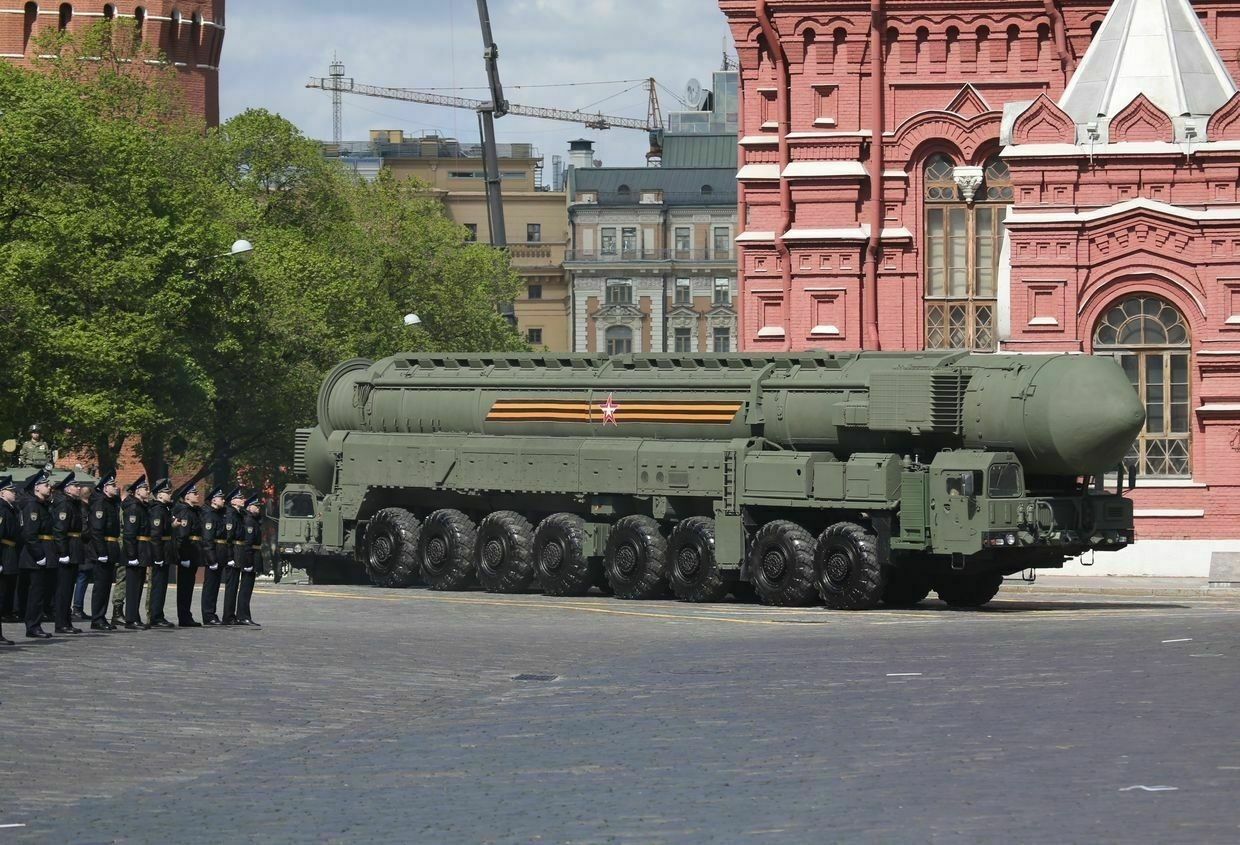
Russia to demand Ukraine destroy Western weapons to end war, senior Kremlin official saysMoscow will insist that Ukraine dismantle and destroy all Western-supplied weapons as part of any ceasefire deal, Russian Deputy Foreign Minister Alexander Grushko said in an interview with the state-run newspaper Izvestia published June 16.
“All these surpluses must be destroyed. All international algorithms are known. They must be reduced, disposed of, and guaranteed,” Grushko said, without offering specifics.
The remarks reflect Moscow’s growing list of maximalist demands presented in its so-called “peace memorandum” during recent negotiations with Ukraine in Istanbul on June 2.
The document calls for Ukraine to recognize Russia’s annexation of Crimea and four partially occupied regions — Kherson, Donetsk, Zaporizhzhia, and Luhansk — and demands full Ukrainian troop withdrawal and demobilization.
Grushko argued that Western weapons aid threatens not only Russia but also Europe, warning that arms could end up on black markets.
“It’s crazy how reckless some politicians are, still flooding the market with weapons,” he said.
There is no credible evidence that Kyiv has diverted Western weapons or fueled arms trafficking — a narrative promoted by Russian propaganda to undermine support for Kyiv.
Independent oversight by partner states and institutions has consistently found that Ukraine uses Western weapons to defend itself against Russia’s full-scale invasion.
Note from the author:
Ukraine War Latest is put together by the Kyiv Independent news desk team, who keep you informed 24 hours a day, seven days a week. If you value our work and want to ensure we have the resources to continue, join the Kyiv Independent community.
Hungary’s soft power meets Ukraine’s hard reality in ZakarpattiaBEREHOVE, Zakarpattia Oblast — Thin gray smoke drifts beyond the patchwork of Soviet-era apartment blocks, historical buildings, and hillside vineyards that make up Berehove — the heart of the Hungarian community in Ukraine’s westernmost Zakarpattia Oblast. “That’s Hungary, over there,” gestures Vitalii Antipov, a member of the local council, toward the not-so-distantThe Kyiv IndependentMartin Fornusek
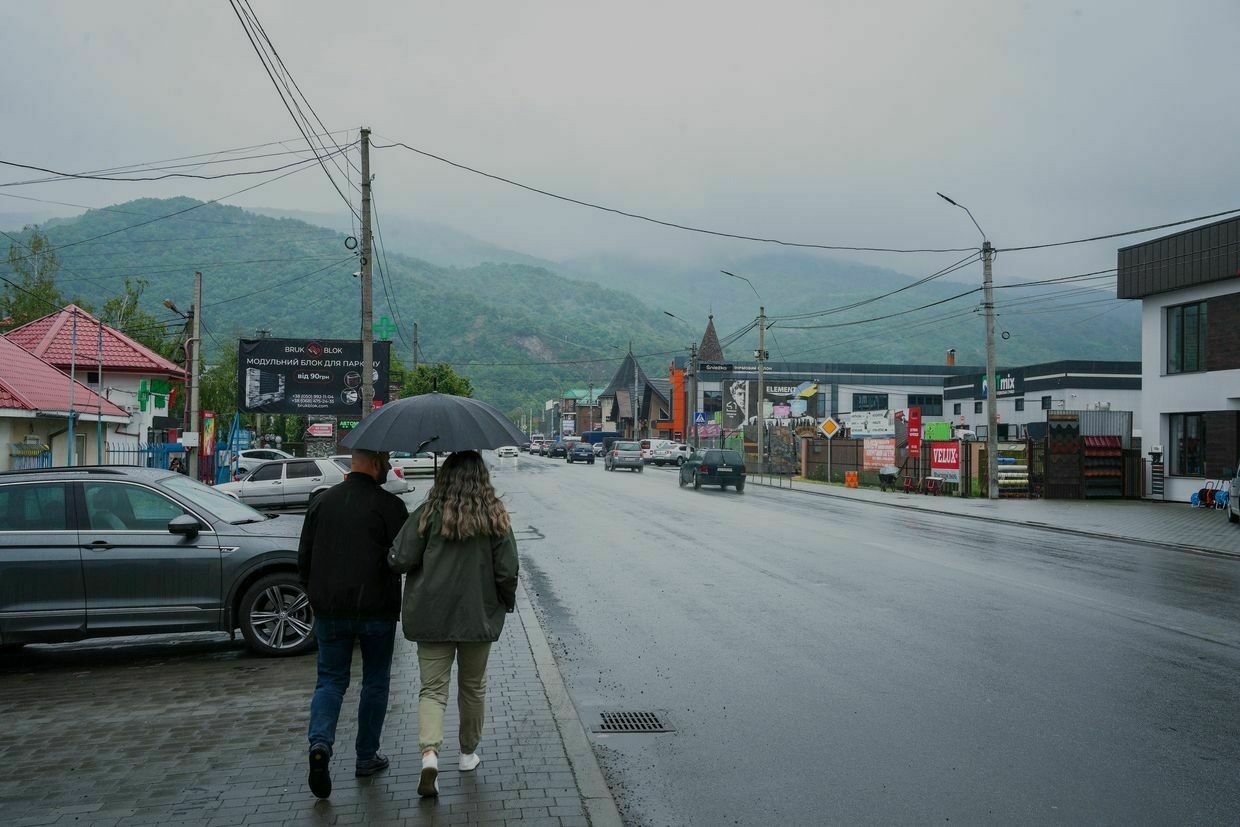
-
Zelensky condemns Russian proposal to swap POWs for abducted Ukrainian children
In a statement highlighting the complex nature of diplomatic negotiations, Ukrainian President Volodymyr Zelensky accused Russia of suggesting a prisoner swap—Ukrainian children abducted by Russia in exchange for Russian POWs. Speaking at a joint press conference with Austrian President Alexander Van der Bellen in Vienna on Monday, June 16, Zelensky emphasized that such an exchange is "absolutely unjust." "Frankly, it's madness, the idea that was, by the way, proposed by the Russians: we give them soldiers, and they give us children. It’s simply beyond understanding and outside of international law," he declared.
Zelensky underscored the need for skilled diplomacy and "bilateral relations of specific individuals with the Russians" to bring back the children. He stressed the importance of involving multiple nations and proactive individuals to slowly repatriate thousands of children kidnapped by Russia to their families. The Ukrainian president also expressed gratitude to the Austrian authorities for joining these initiatives.
Earlier on Monday, it was reported that Ukraine has received the bodies of deceased Russians during the latest round of body repatriations, as confirmed by Interior Minister Ihor Klymenko. Moreover, Ukrainian intelligence revealed that Russia plans to provide fake lists of casualties during these exchanges, potentially to incite panic and outrage among the Ukrainian public.
-
Interior Minister Klymenko: Russia returns bodies of soldiers to Ukraine mixed and mutilated
Russia has reportedly returned to Ukraine the bodies of Russian soldiers mixed with Ukrainian ones, a move believed to be aimed at complicating identification processes, said Ukraine's Interior Minister Ihor Klymenko, emphasizing the painstaking and emotionally challenging nature of repatriating fallen servicemen.
The return of deceased military personnel, according to Klymenko, is an arduous yet crucial task. He accused Russia of deliberately impeding the identification process by sending back the bodies in a severely mutilated state and mixing Ukrainian bodies with Russian ones. "During the recent repatriations, we received bodies of Russian soldiers mixed with those of Ukrainians. Unfortunately, this is a fact. It may have been done deliberately by the Russians to inflate the number of bodies sent back and overwhelm our experts, while exerting cynical informational pressure. Alternatively, it might reflect their habitual neglect towards their own people. Regardless, we will identify these bodies," Klymenko stated.
Each repatriation triggers a meticulous procedure involving autopsies, detailed inspection by investigators, DNA testing, and scrutiny of every detail, Klymenko added. "The process is inherently complex and lengthy. Yet, Russia intentionally complicates the identification task. Bodies are returned in extremely disfigured conditions, with body parts in separate bags. There have been instances where remains of a single individual were returned at different stages of repatriation," Klymenko wrote.
According to him, experts are operating at their maximum capacity. Every examination is thorough and often repeated. The facilities are well-equipped, and the processes are established, but time remains the biggest challenge. "We understand the pain and anticipation of the families. We're striving to expedite the identification process. However, with each major repatriation, this task becomes more difficult, which might just be Russia's objective. We cannot afford errors. This isn't about statistics for us; it's about people, each of whom deserves dignity and respect," Klymenko stressed.
Notably, on June 14, Ukraine reportedly recovered 1,200 bodies, which, according to Russia, belong to Ukrainian citizens, particularly defense force members, as stated by the Coordination Headquarters. The exchange of bodies was facilitated by the International Committee of the Red Cross (ICRC).
On June 16, Ukraine retrieved the bodies of 1,212 fallen defenders as part of the ongoing repatriation activities.
-
Russia ramps up its summer offensive in several directions, Ukraine's military says
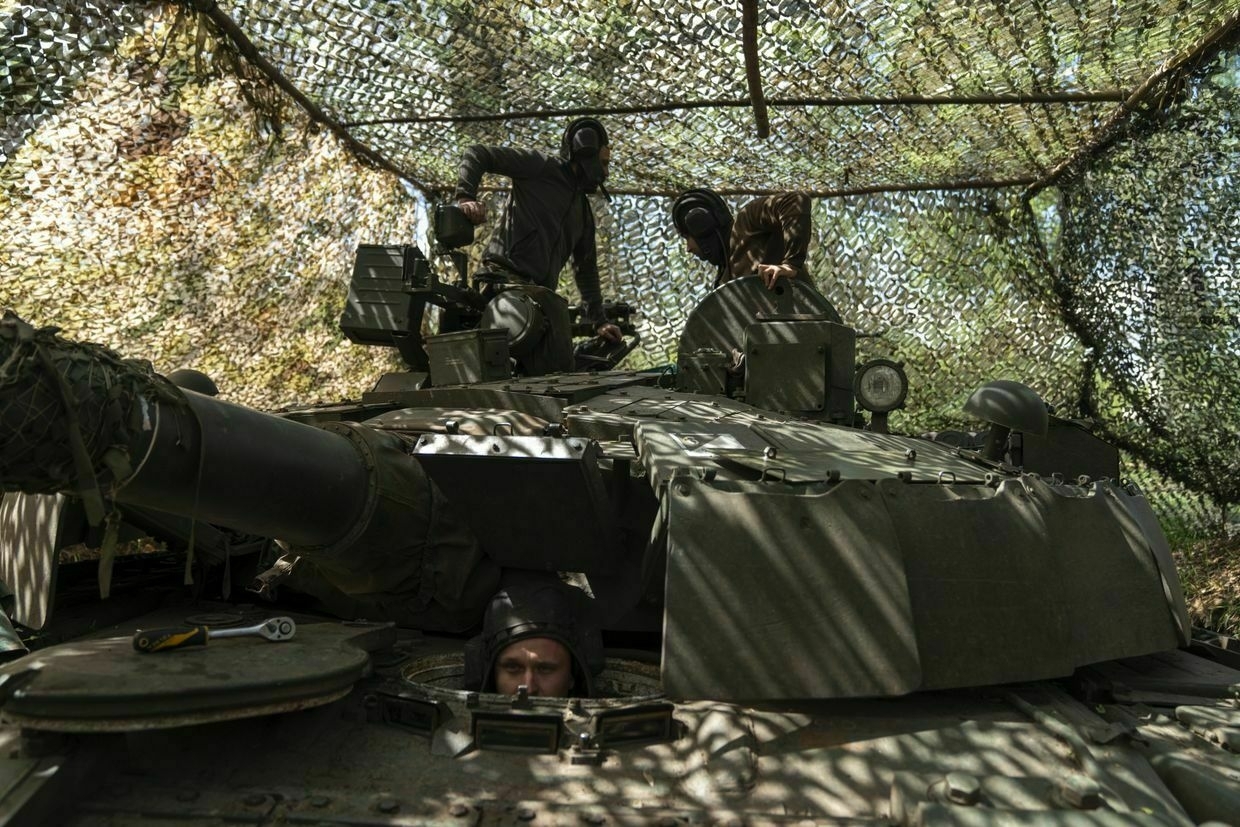
Russian forces have intensified offensive operations across multiple front-line areas, said Victor Tregubov, a spokesperson for Ukraine’s Khortytsia group of forces, on June 16.
According to Tregubov, Russian troops have ramped up attacks, particularly in the Novopavlivka and Kharkiv sectors, which is an unusual development for these areas.
Ukraine’s General Staff reported that Russian forces launched attacks in 12 directions, resulting in 99 recorded clashes. Ukrainian soldiers repelled 17 attacks in the Novopavlivka sector alone, according to the latest update.
“This signals that we have the expected summer increase in activity,” Tregubov said.
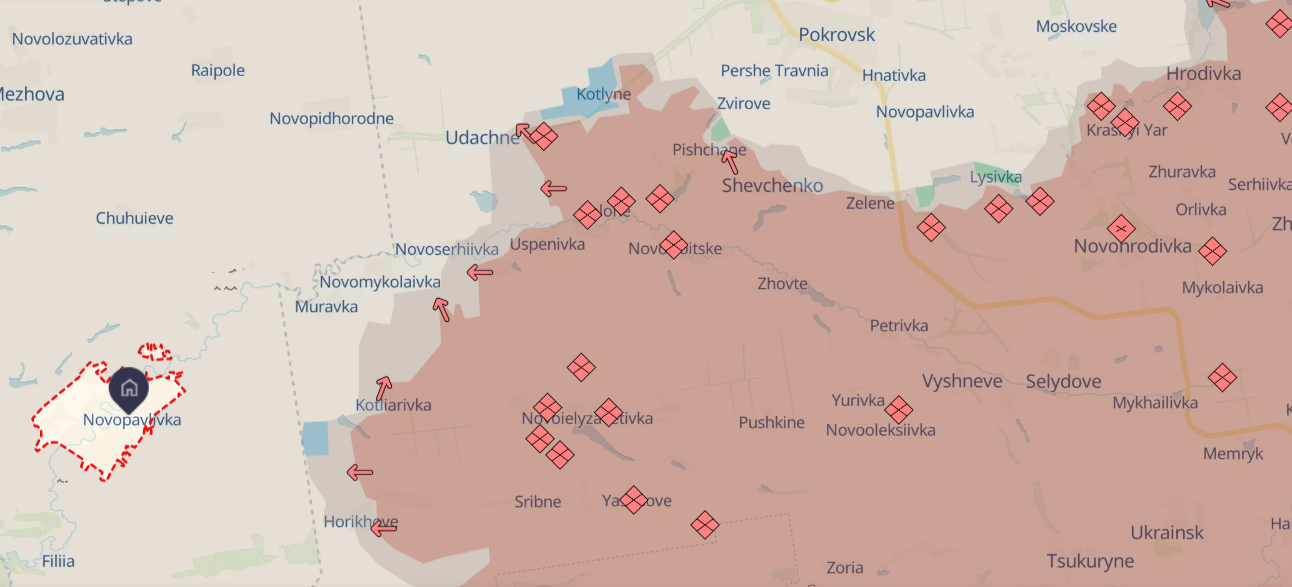
The estimated Russian advance in Donetsk Oblast as of June 16, 2025. (DeepState/OpenStreet Map) Speaking on national television, he said that the surge in activity near Novopavlivka suggests Russian forces are attempting to push into Dnipropetrovsk Oblast, which neighbors the embattled Donetsk Oblast.
“But they (Russia) have failed to succeed,” the spokesperson added.
Last week, on June 13, President Volodymyr Zelensky said that heavy fighting was ongoing along Ukraine’s northeastern border.
Russian forces have concentrated around 53,000 troops in the Sumy sector, pushing into multiple settlements. The president confirmed that small Russian reconnaissance groups had briefly crossed into Dnipropetrovsk Oblast — likely for propaganda purposes.
From buffer zone to new front: Russia pushes deeper into Sumy OblastIn March 2025, as Ukrainian forces made their final retreat from Sudzha in Russia’s Kursk Oblast, new grey spots began to appear on open-source maps on the other side of the state border, in Ukraine’s Sumy Oblast. For the first time since 2022, when Moscow’s forces retreatedThe Kyiv IndependentFrancis Farrell
